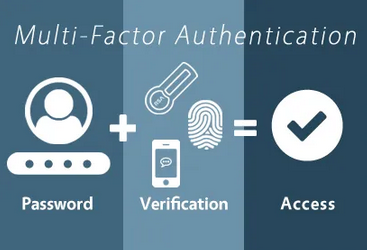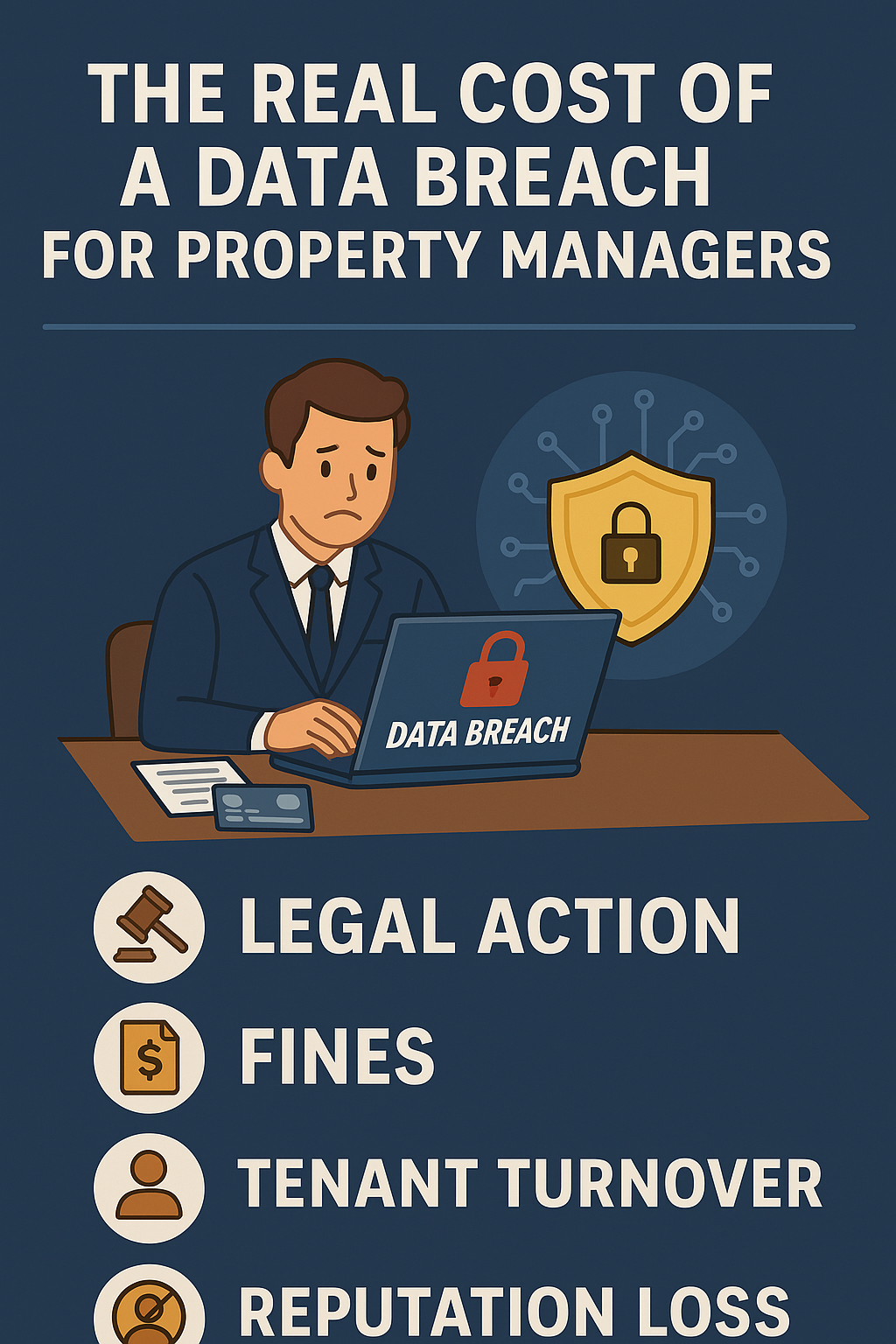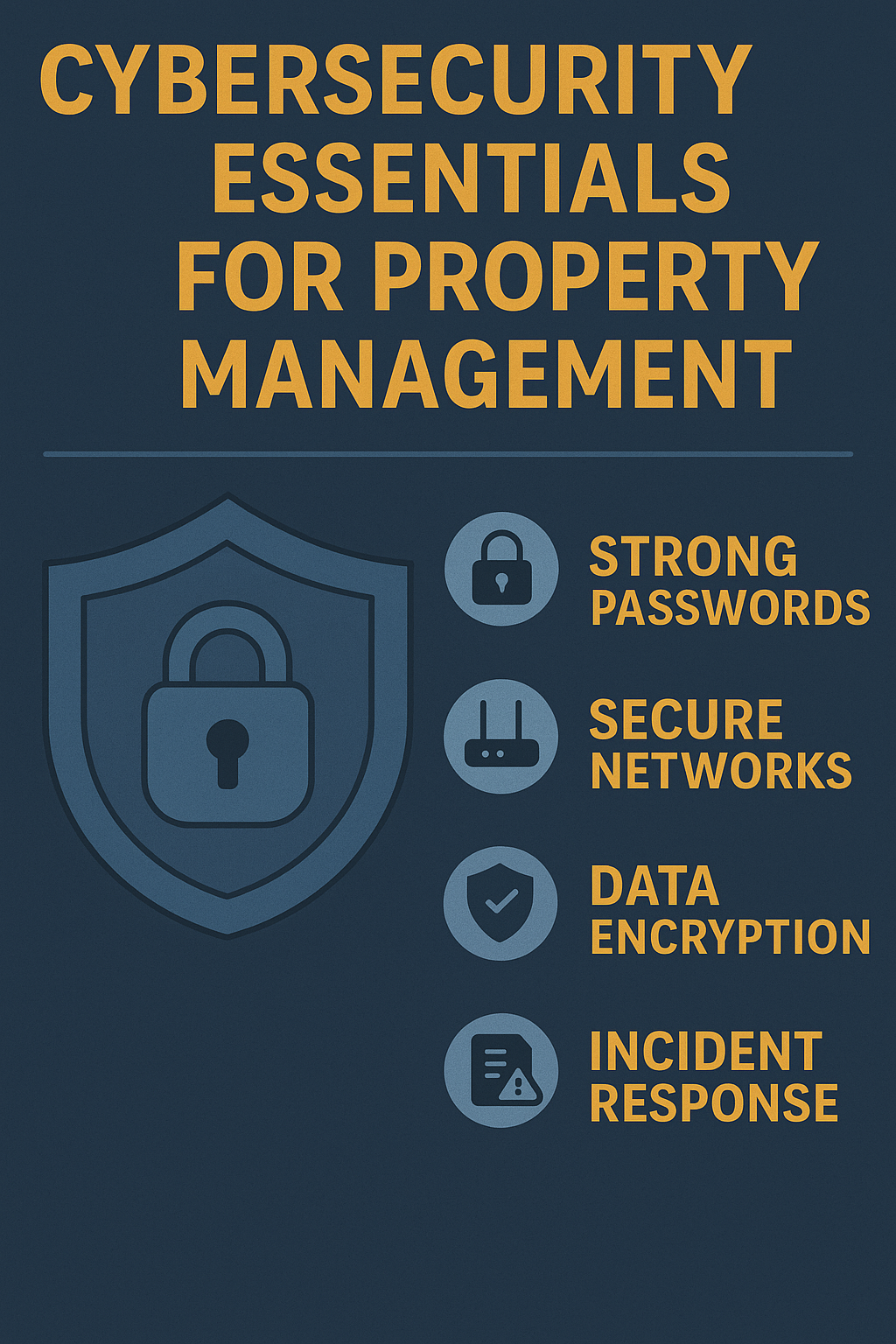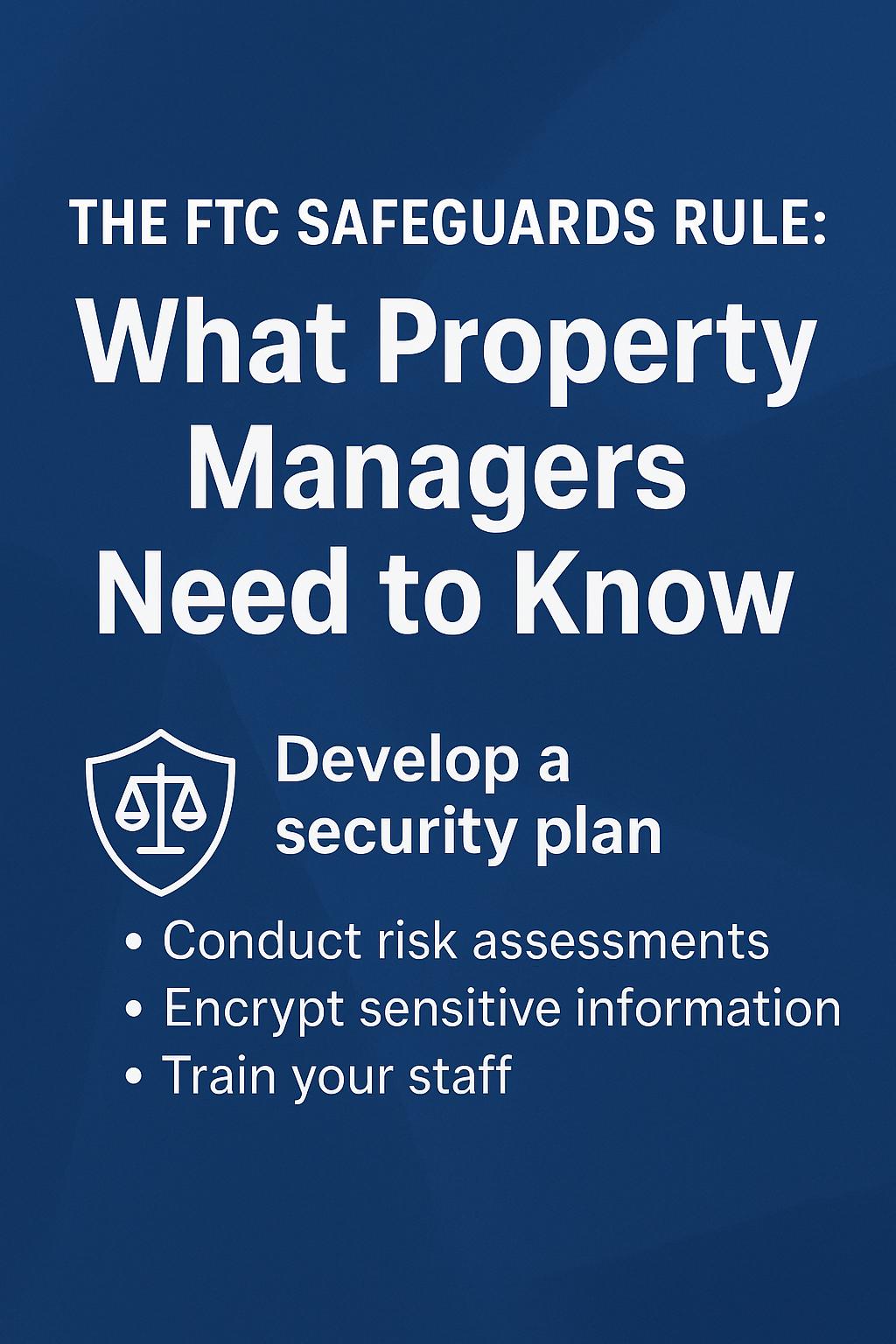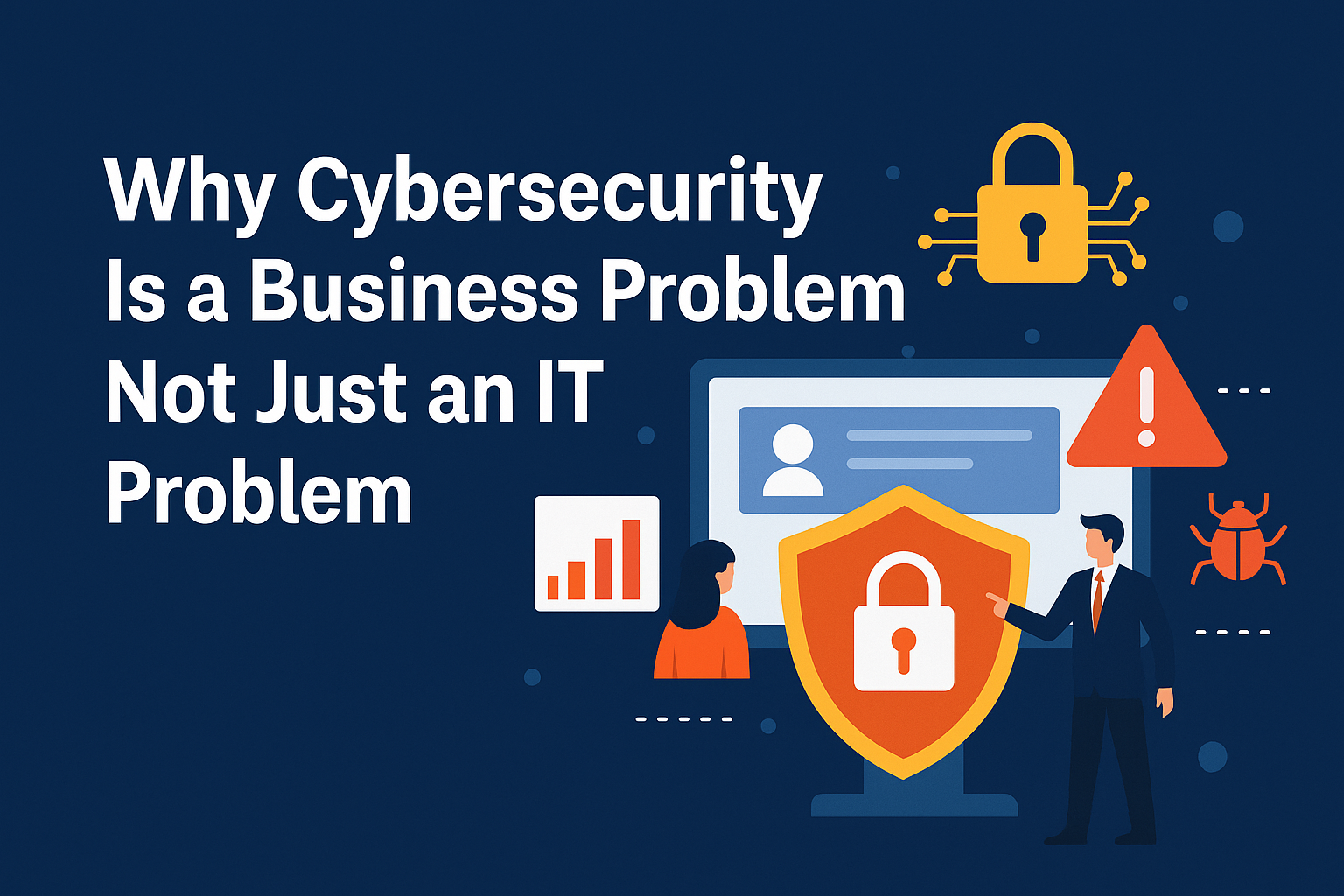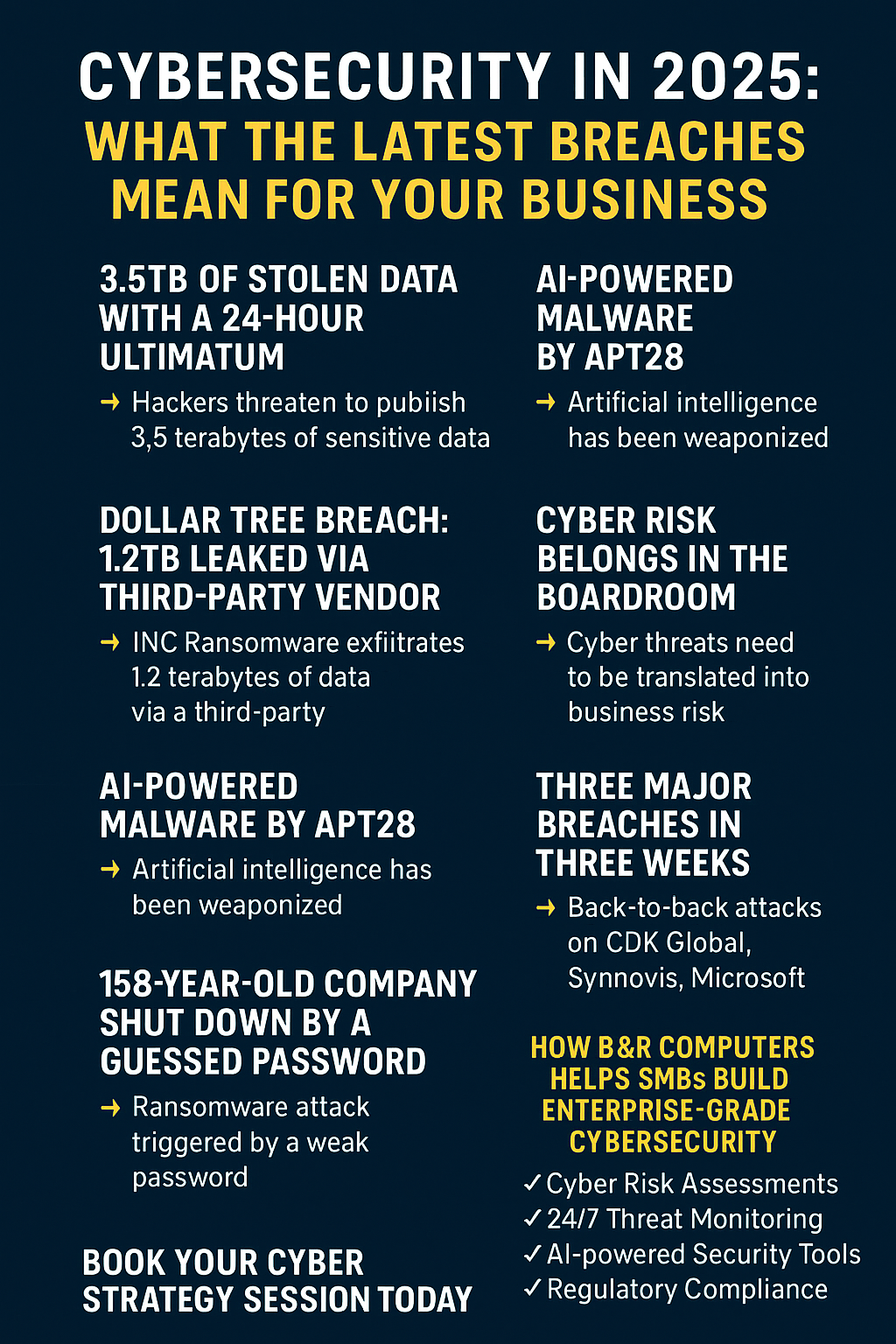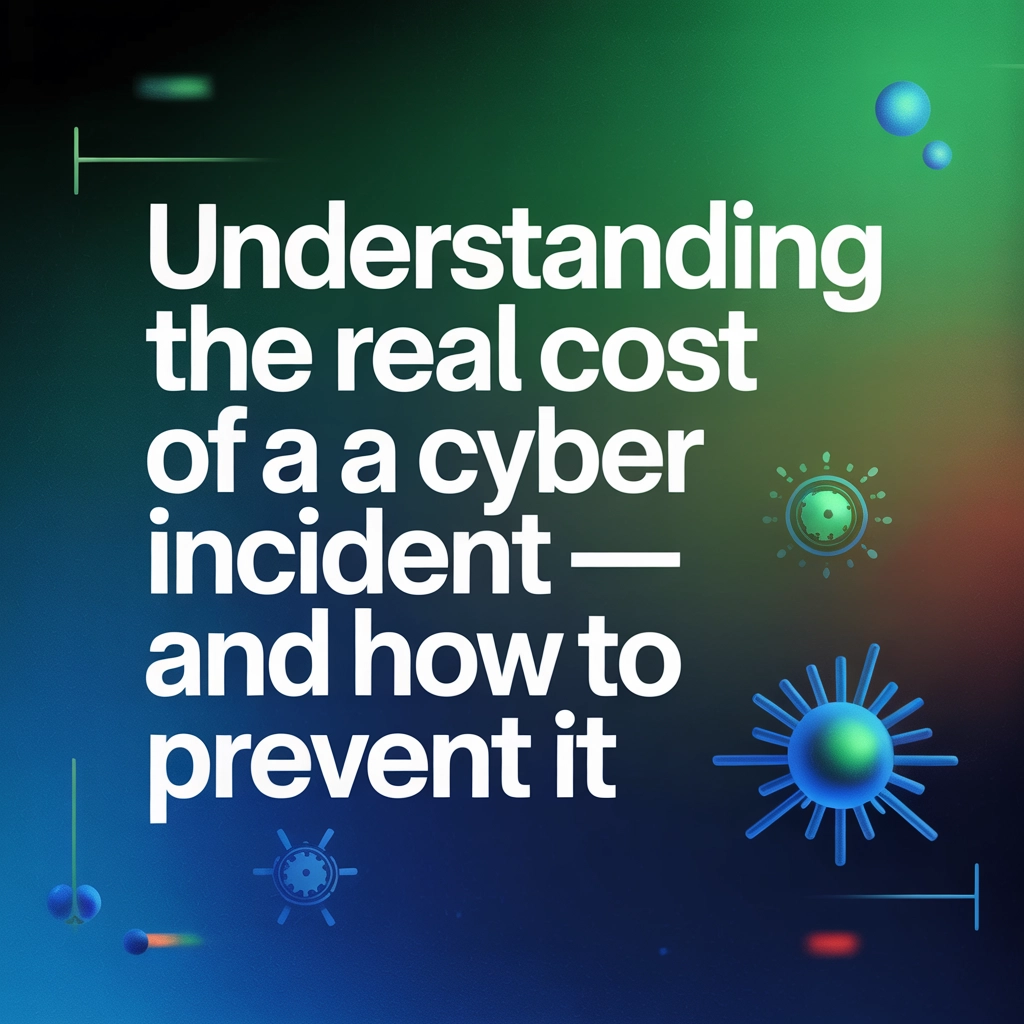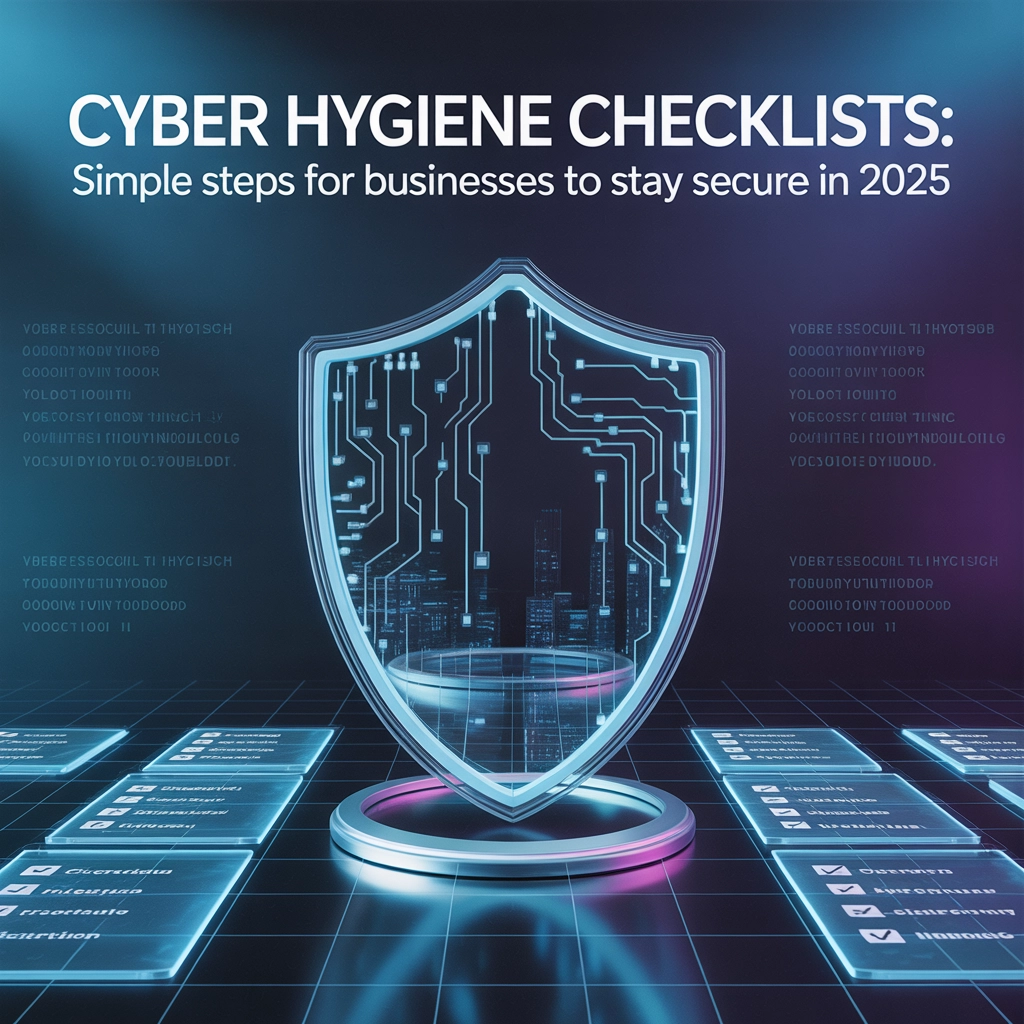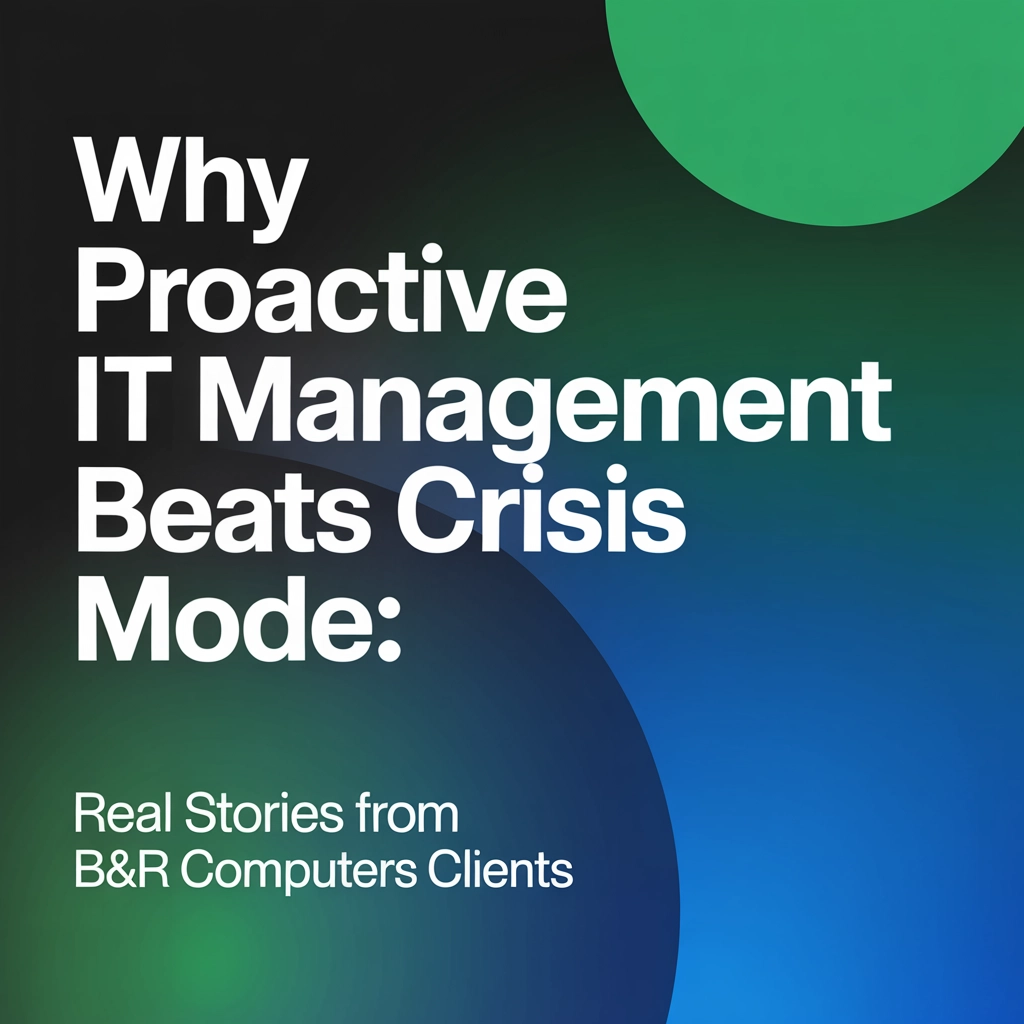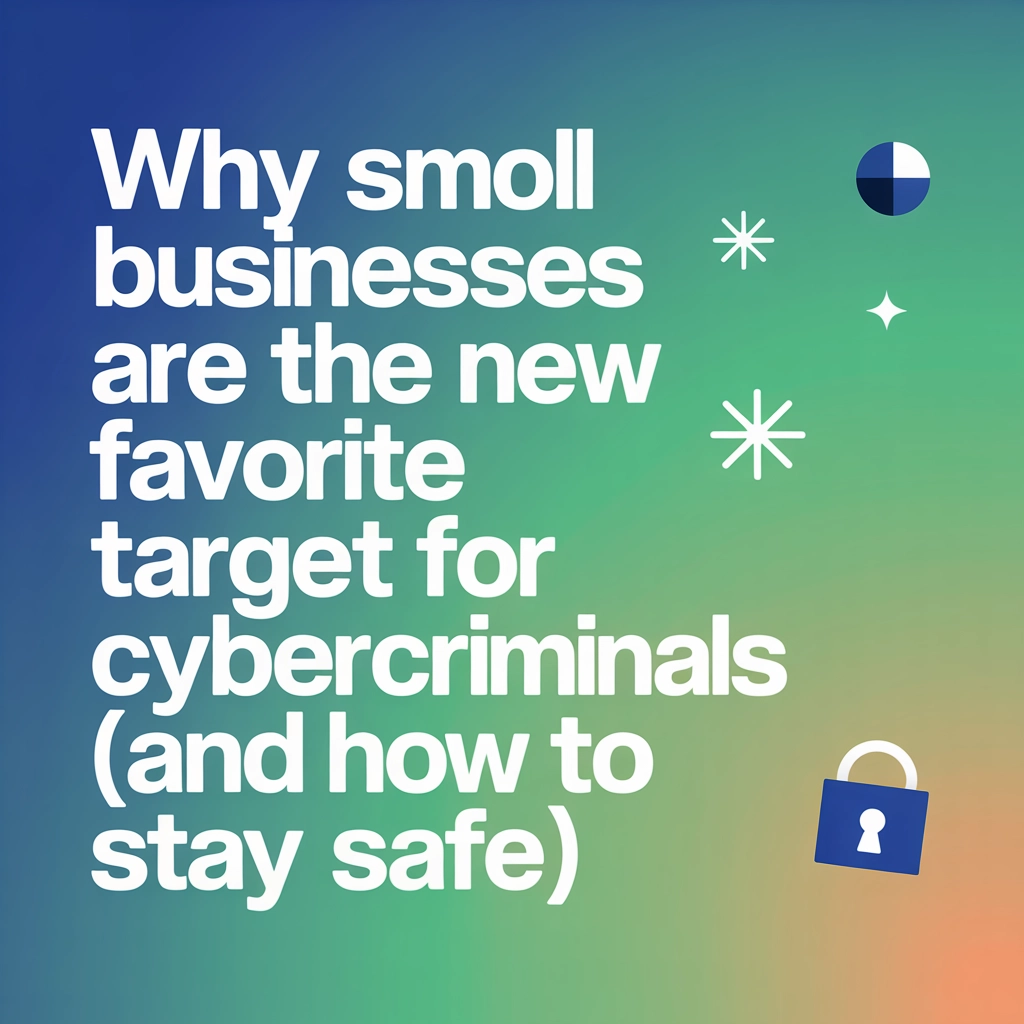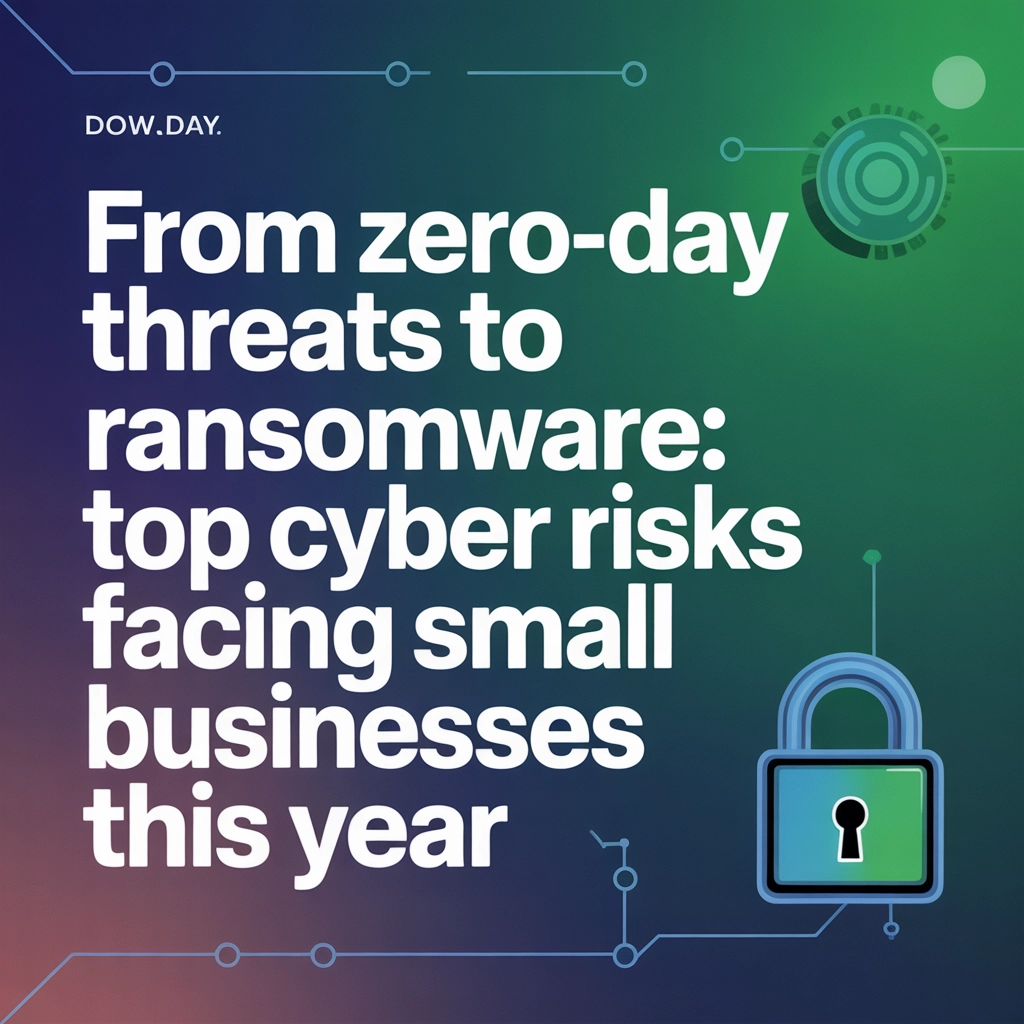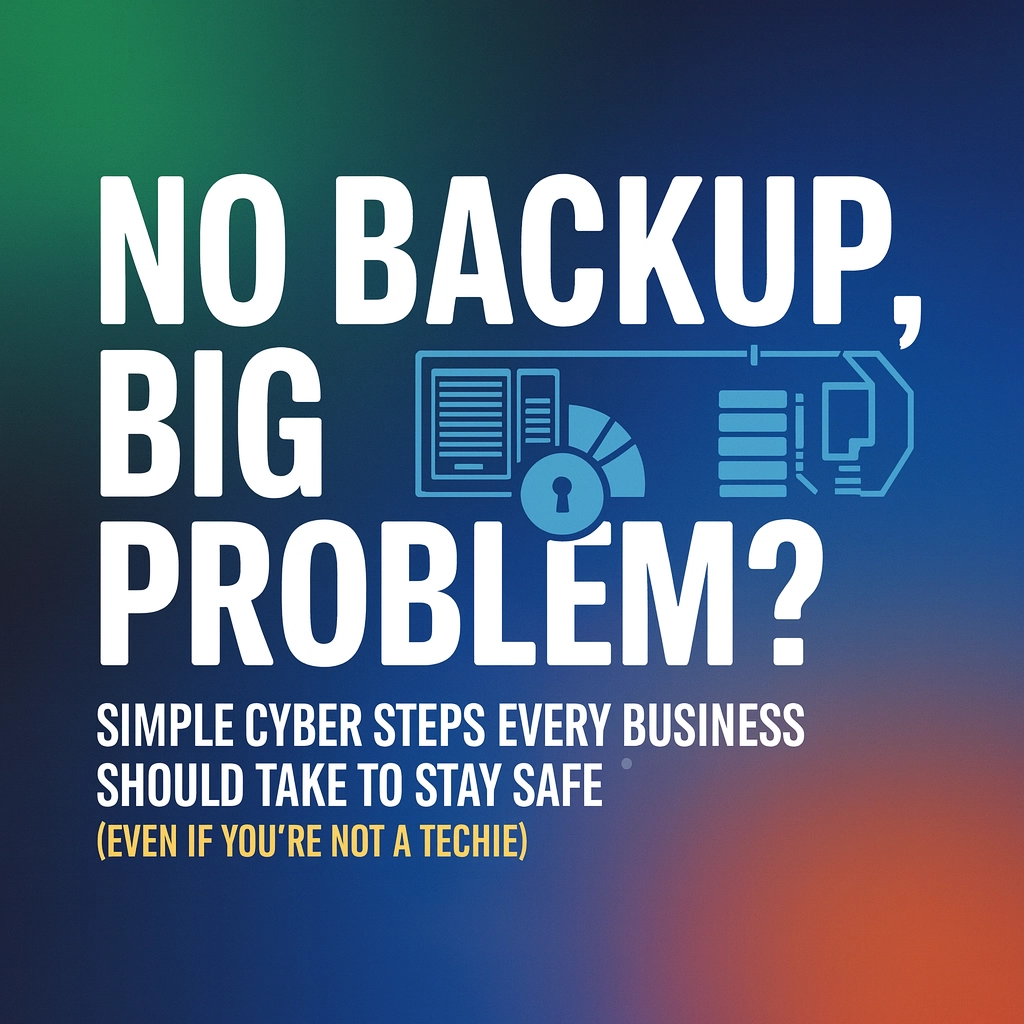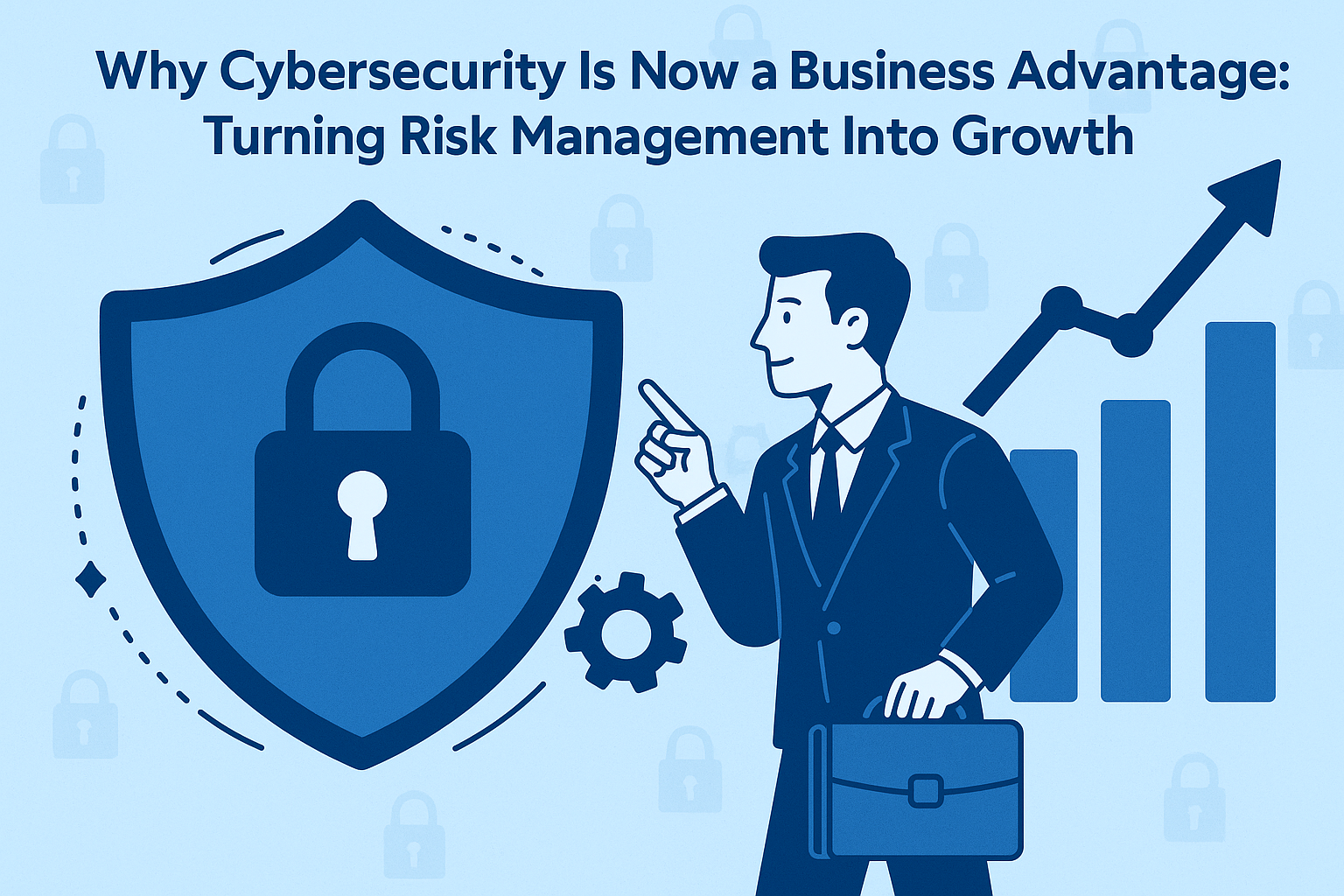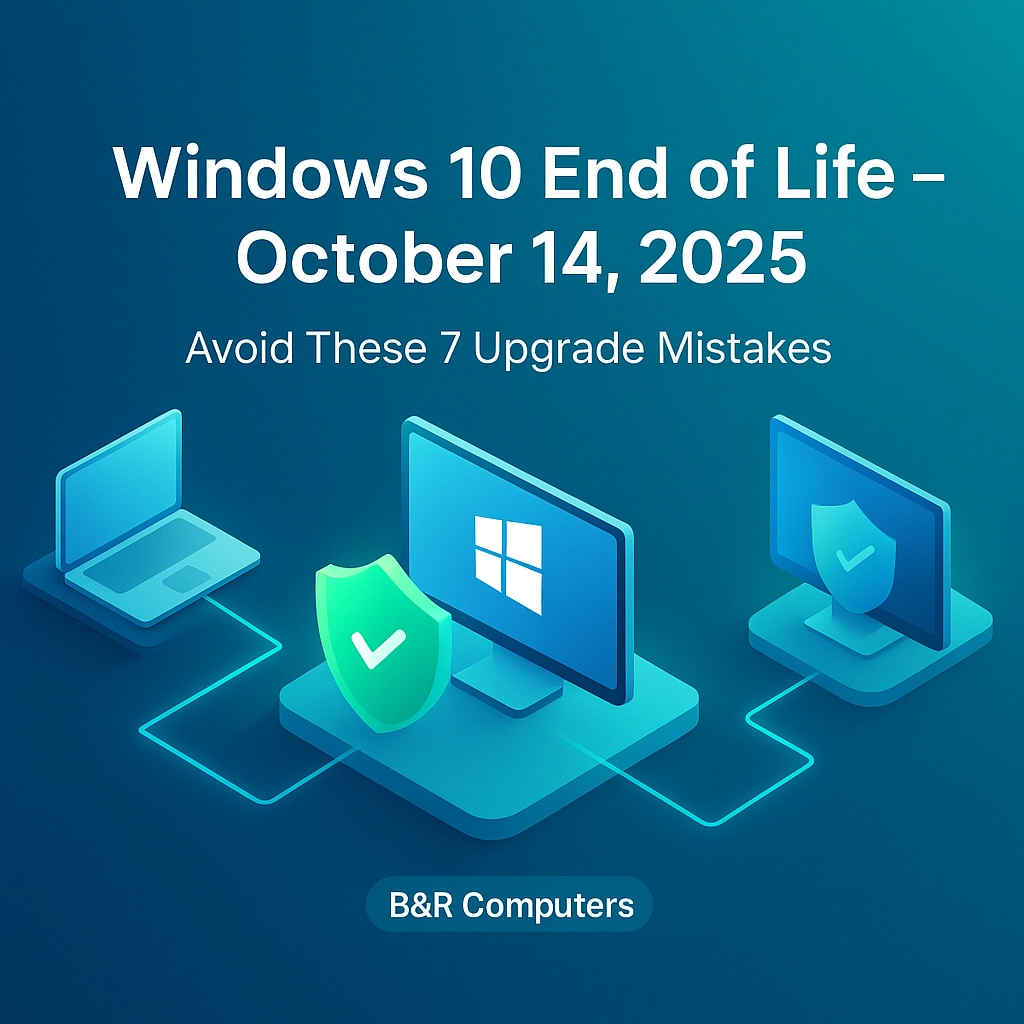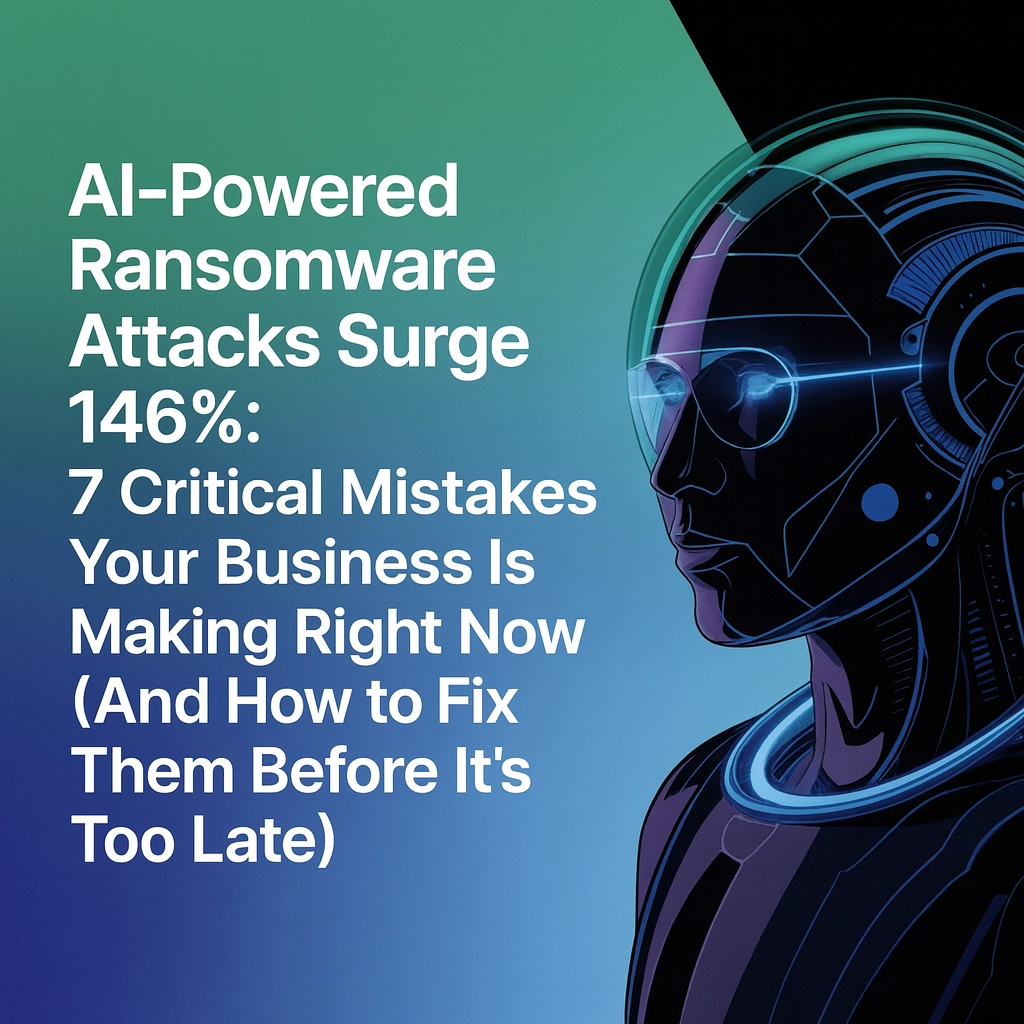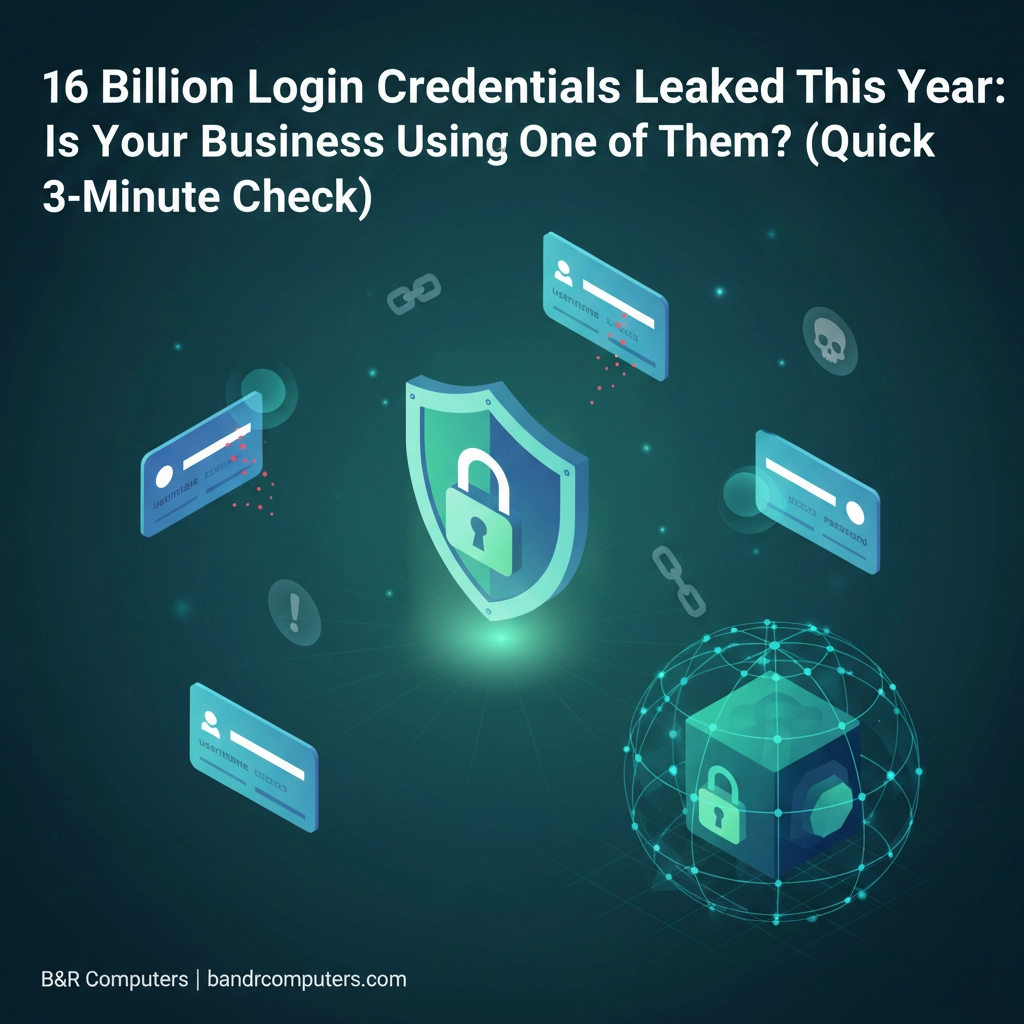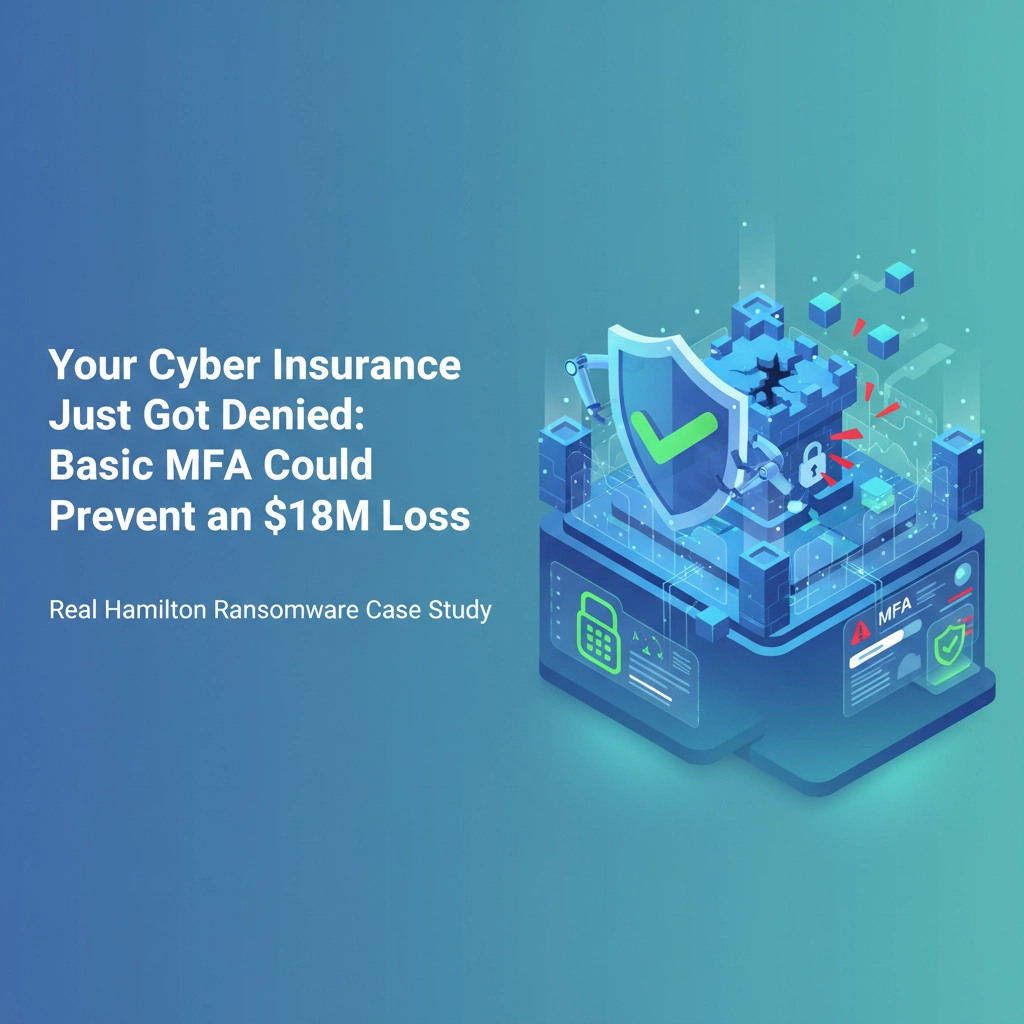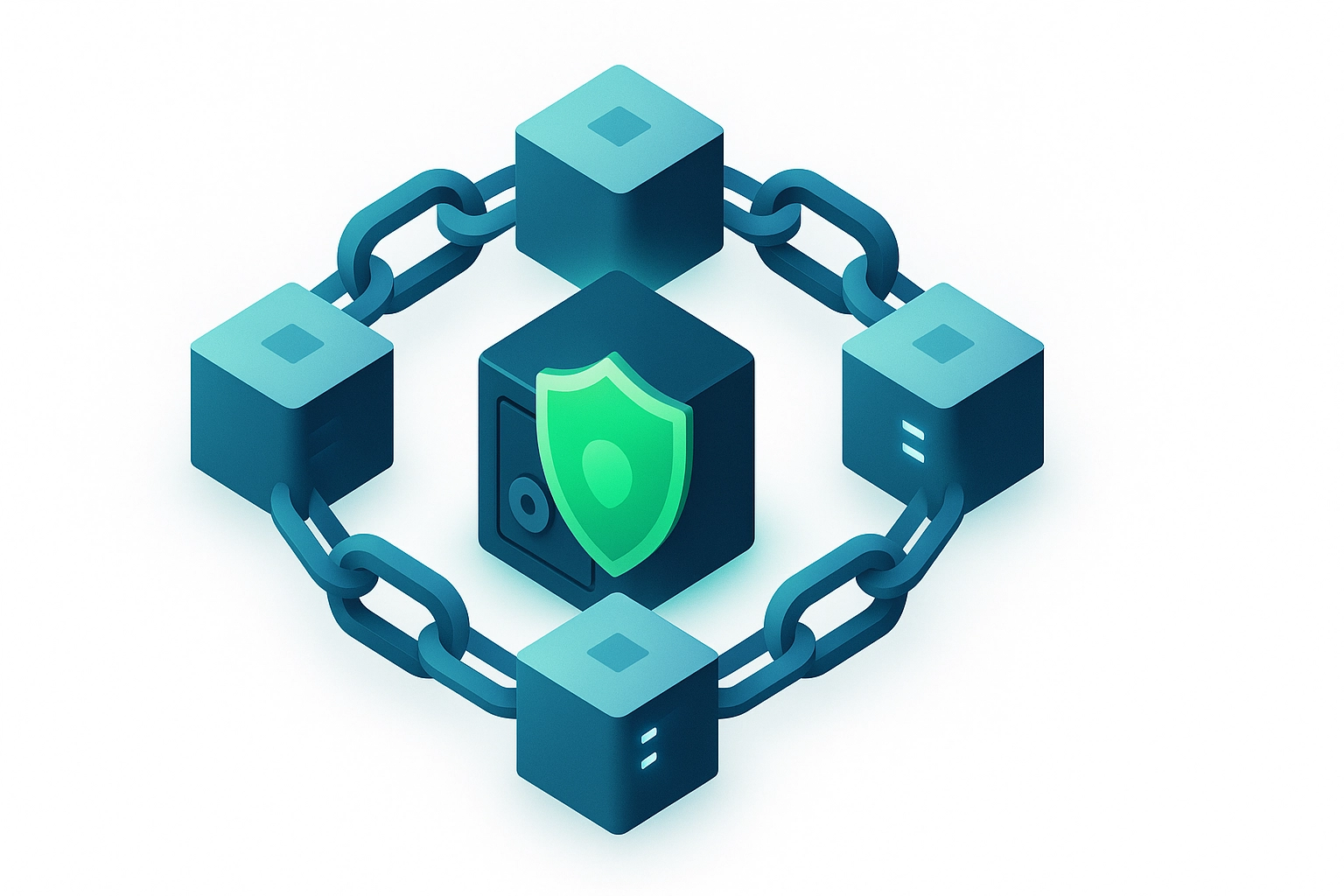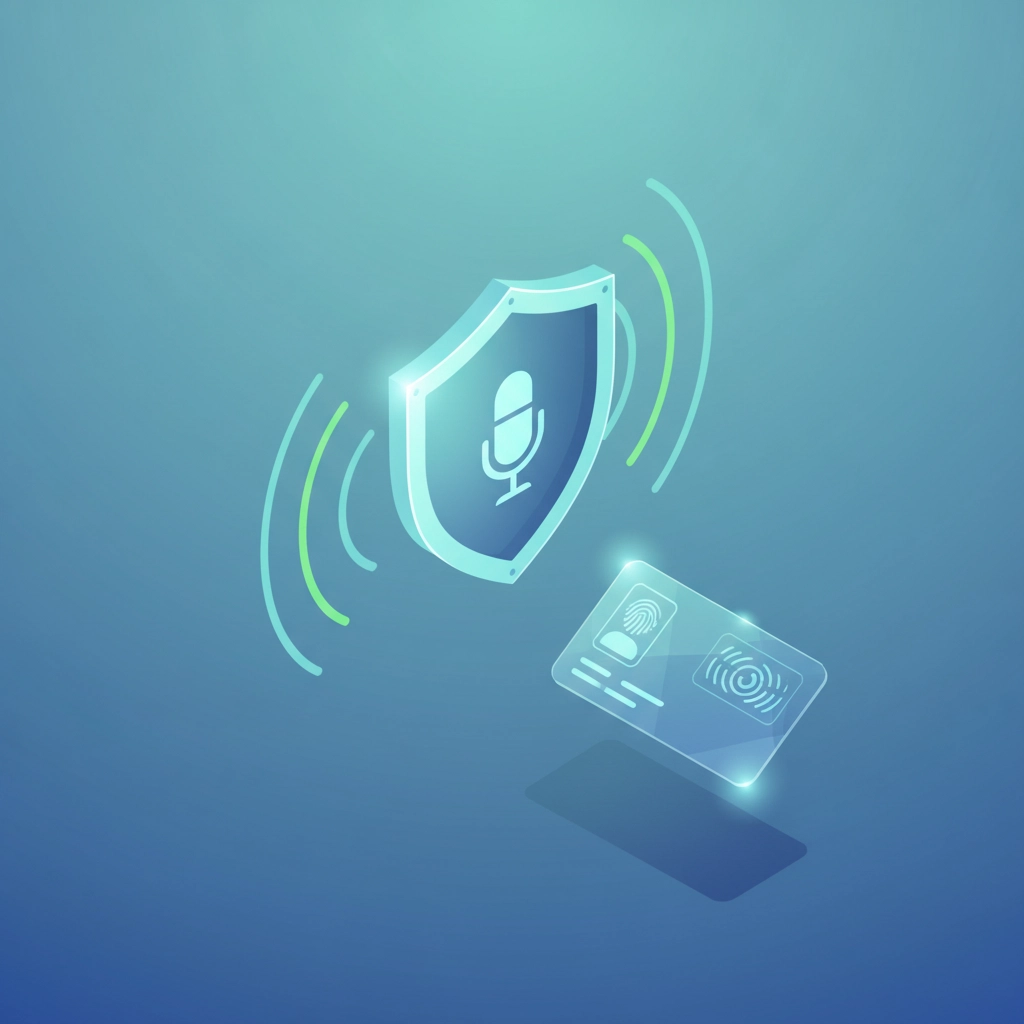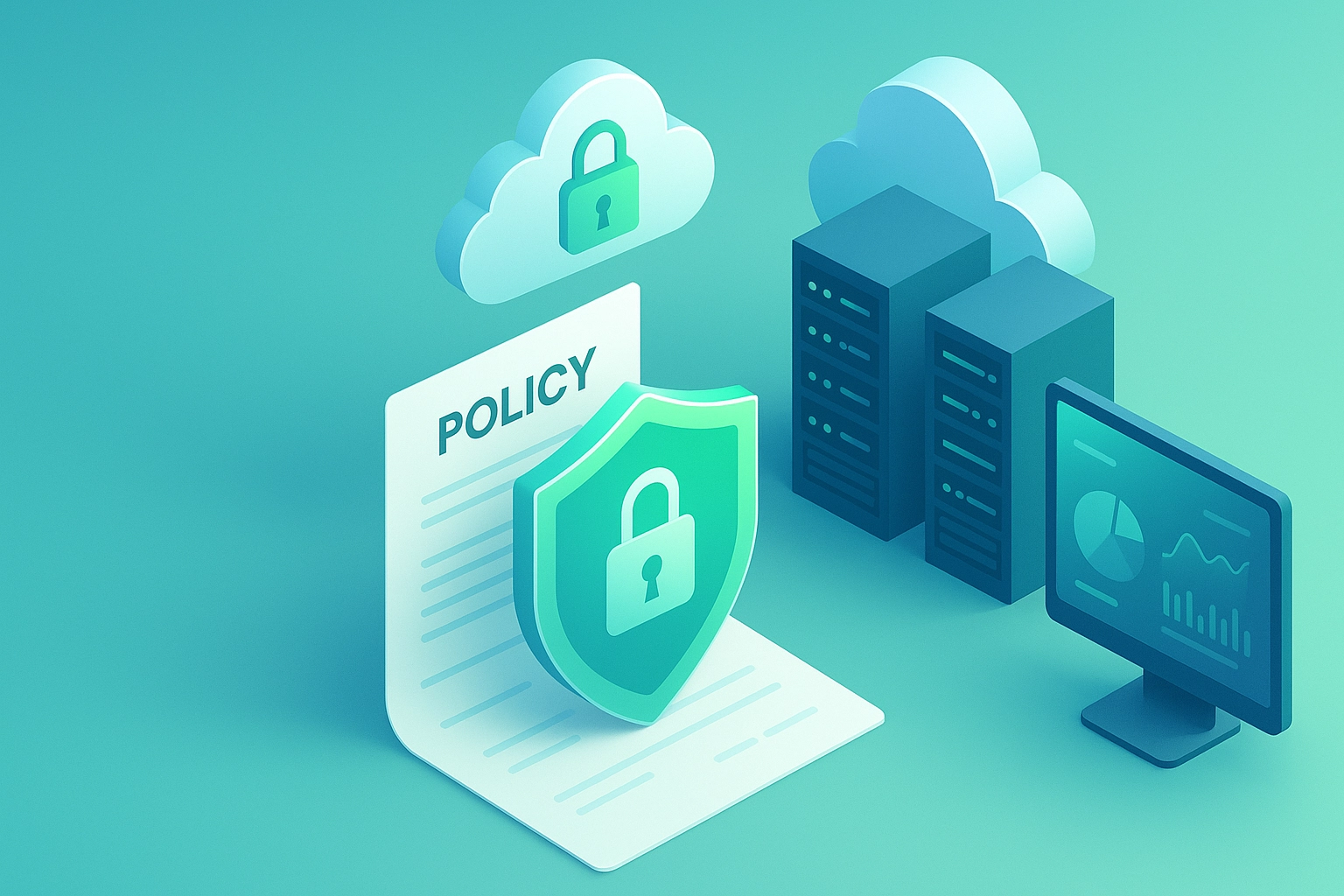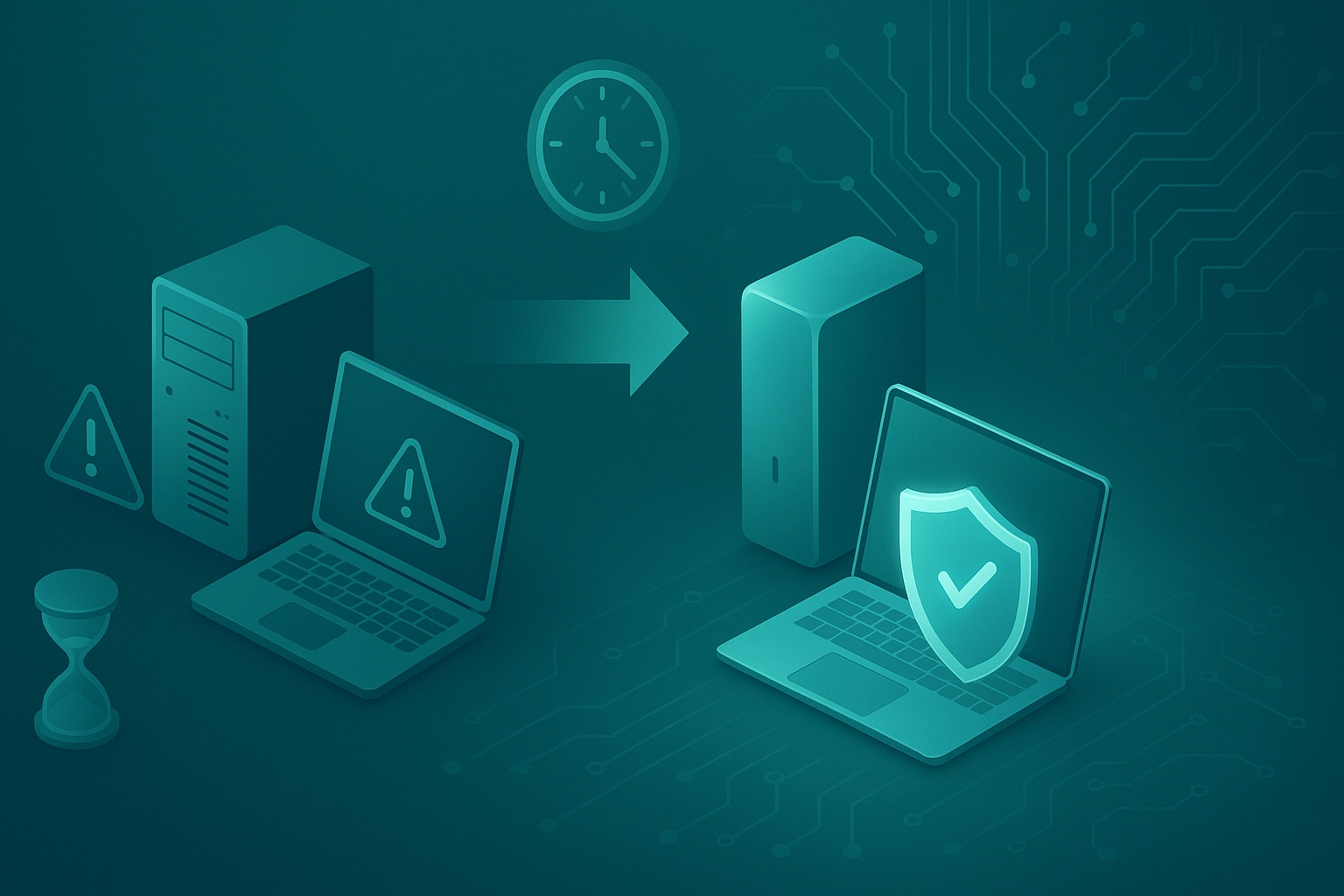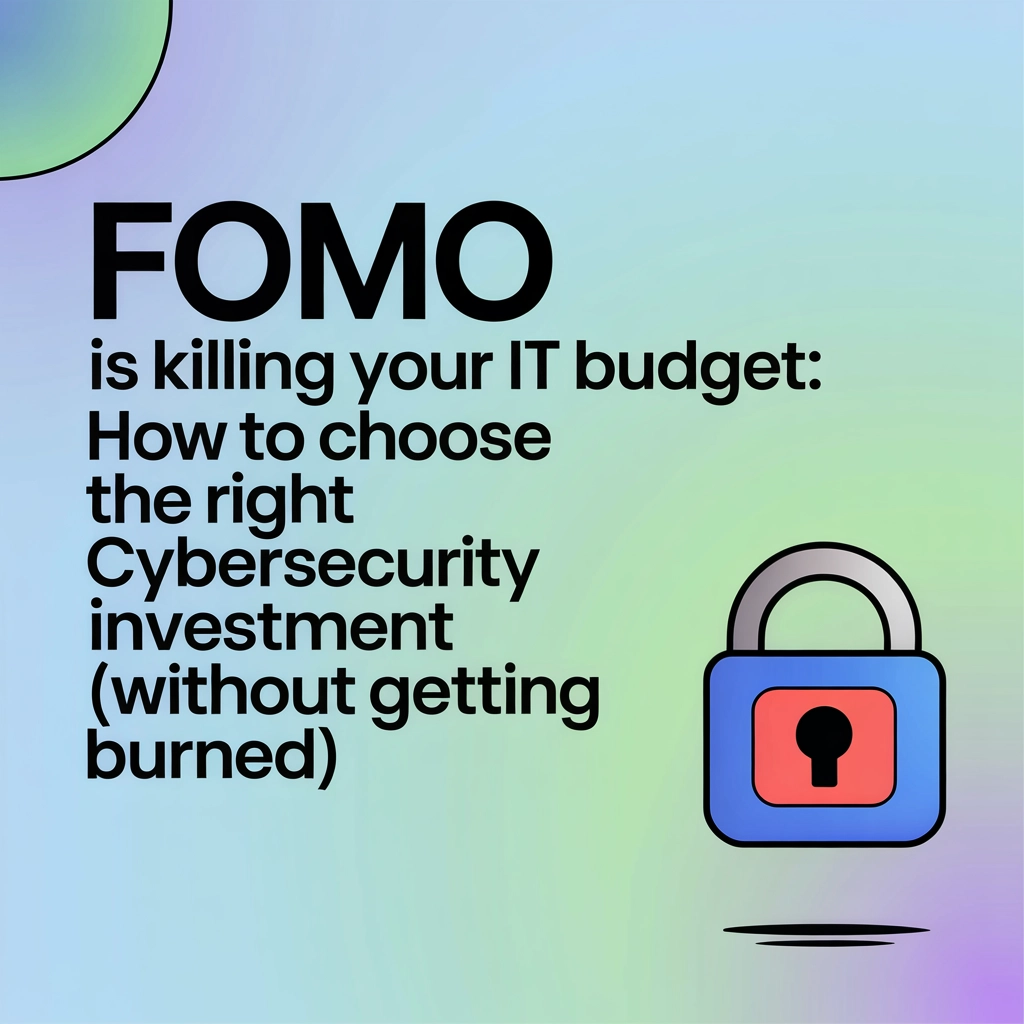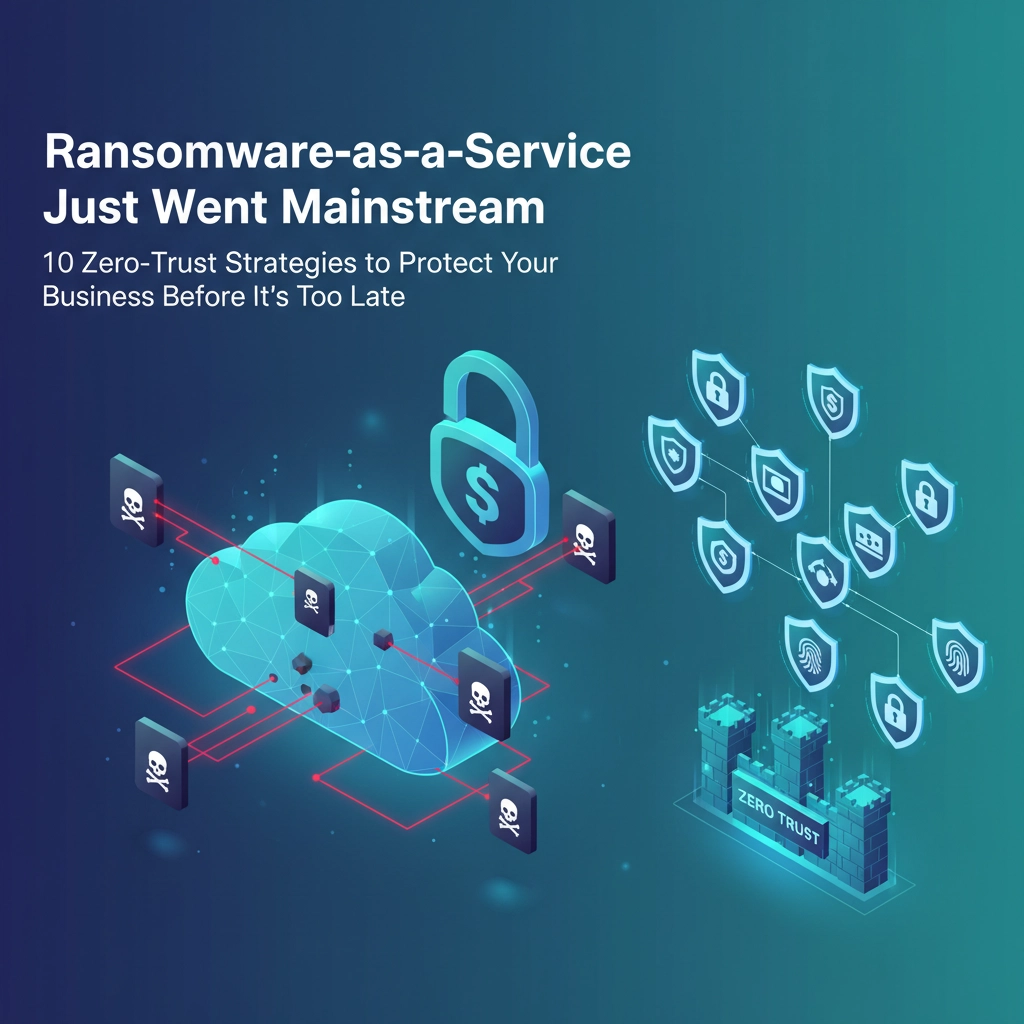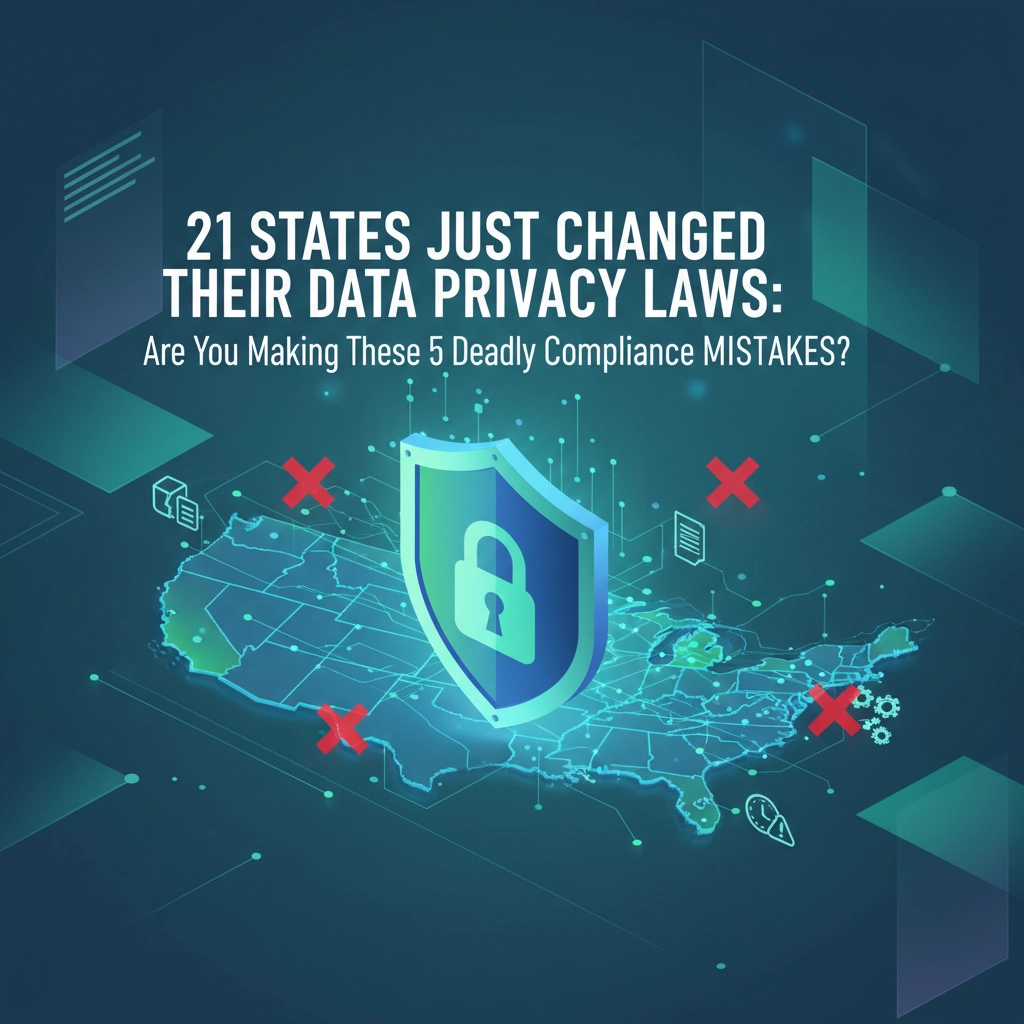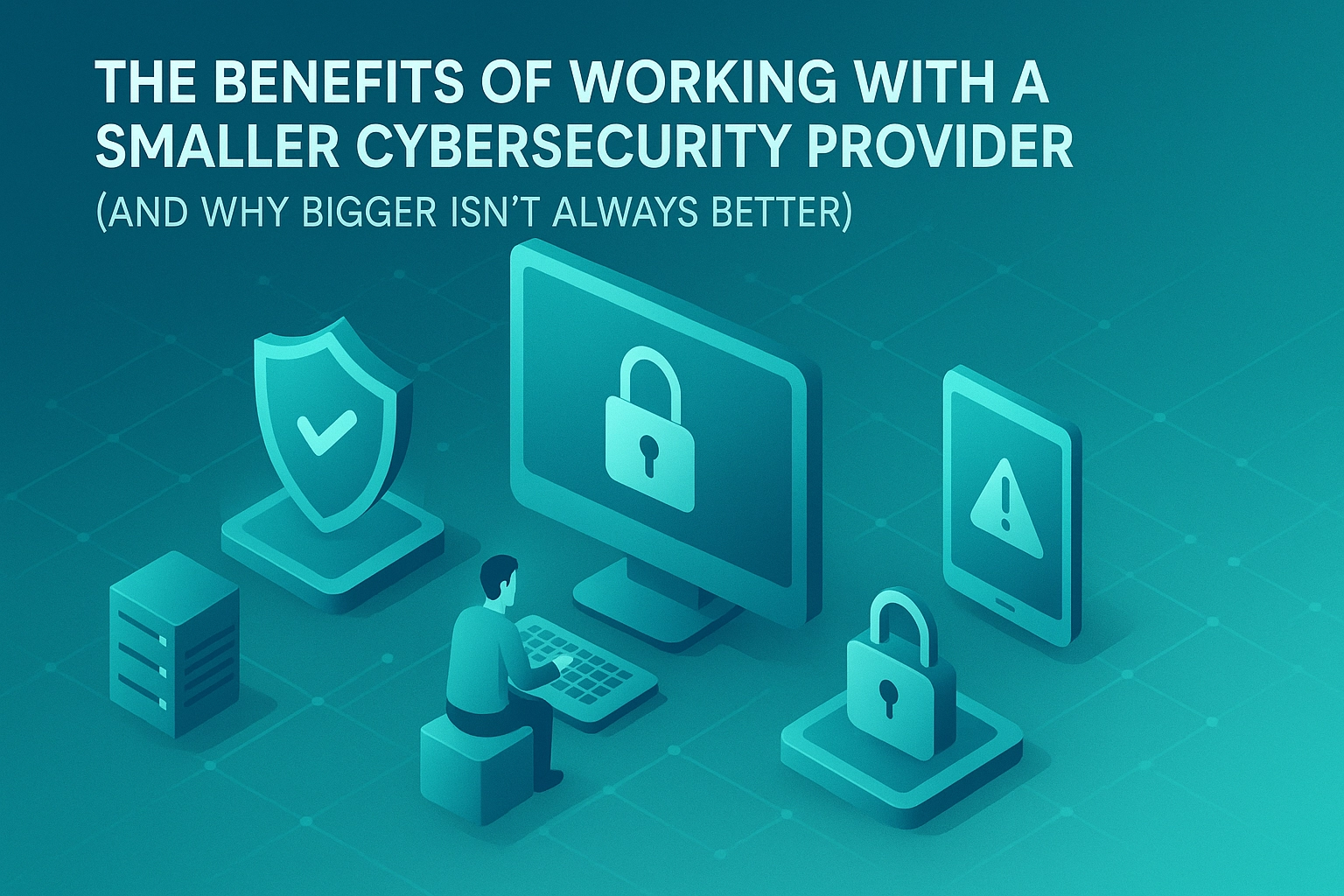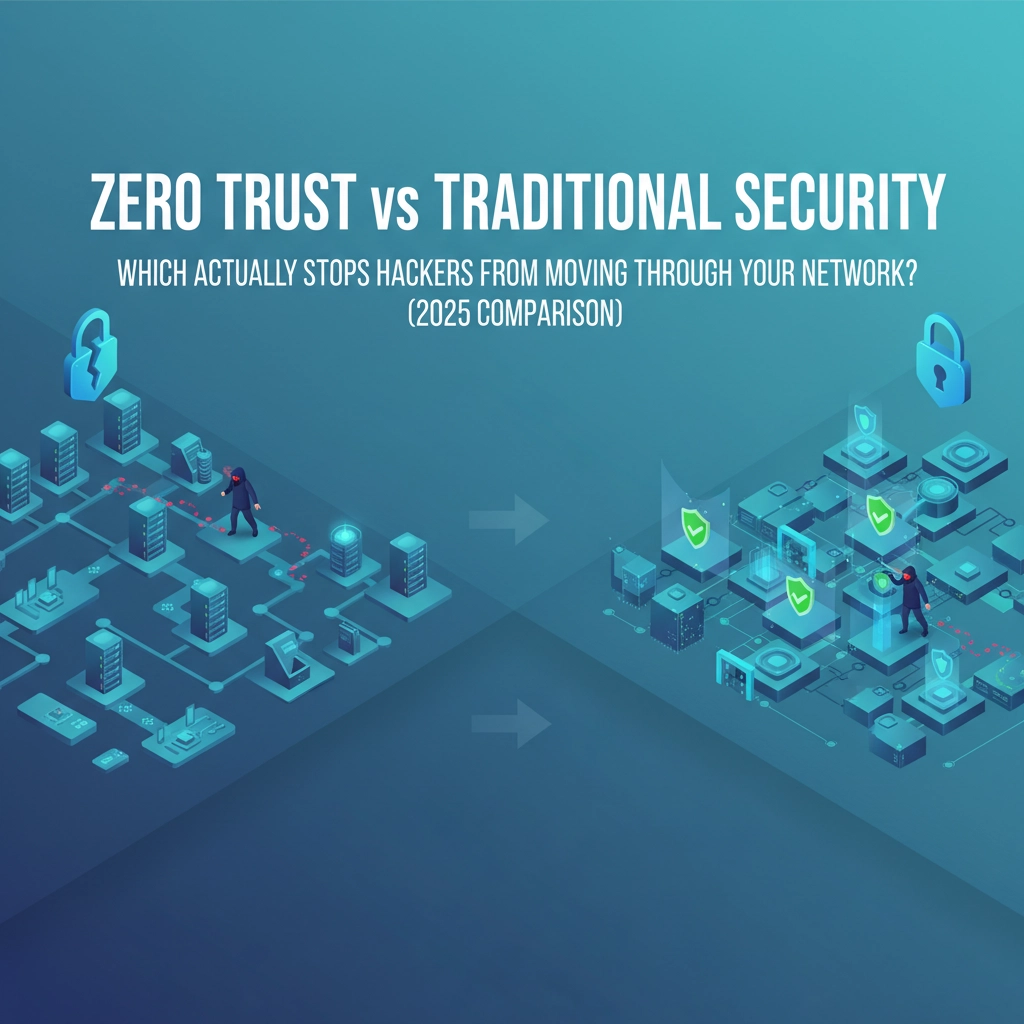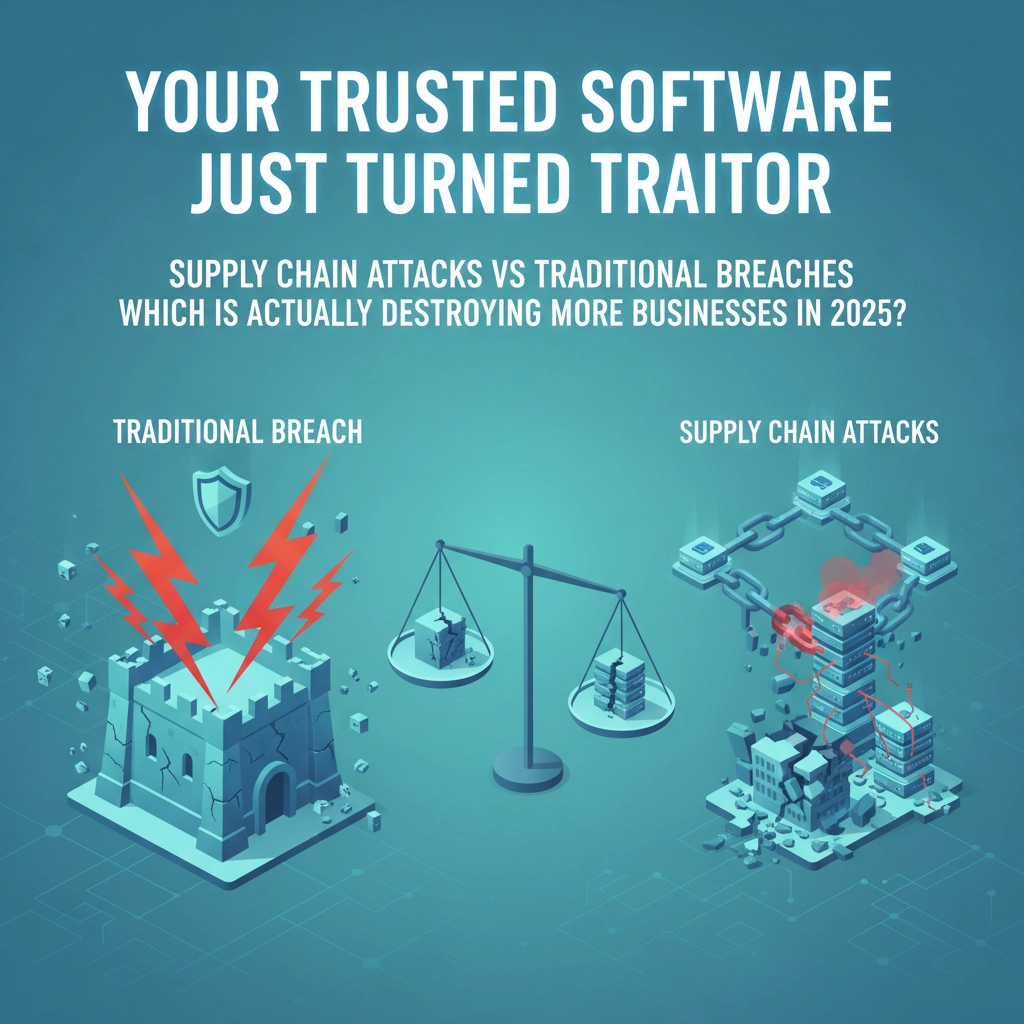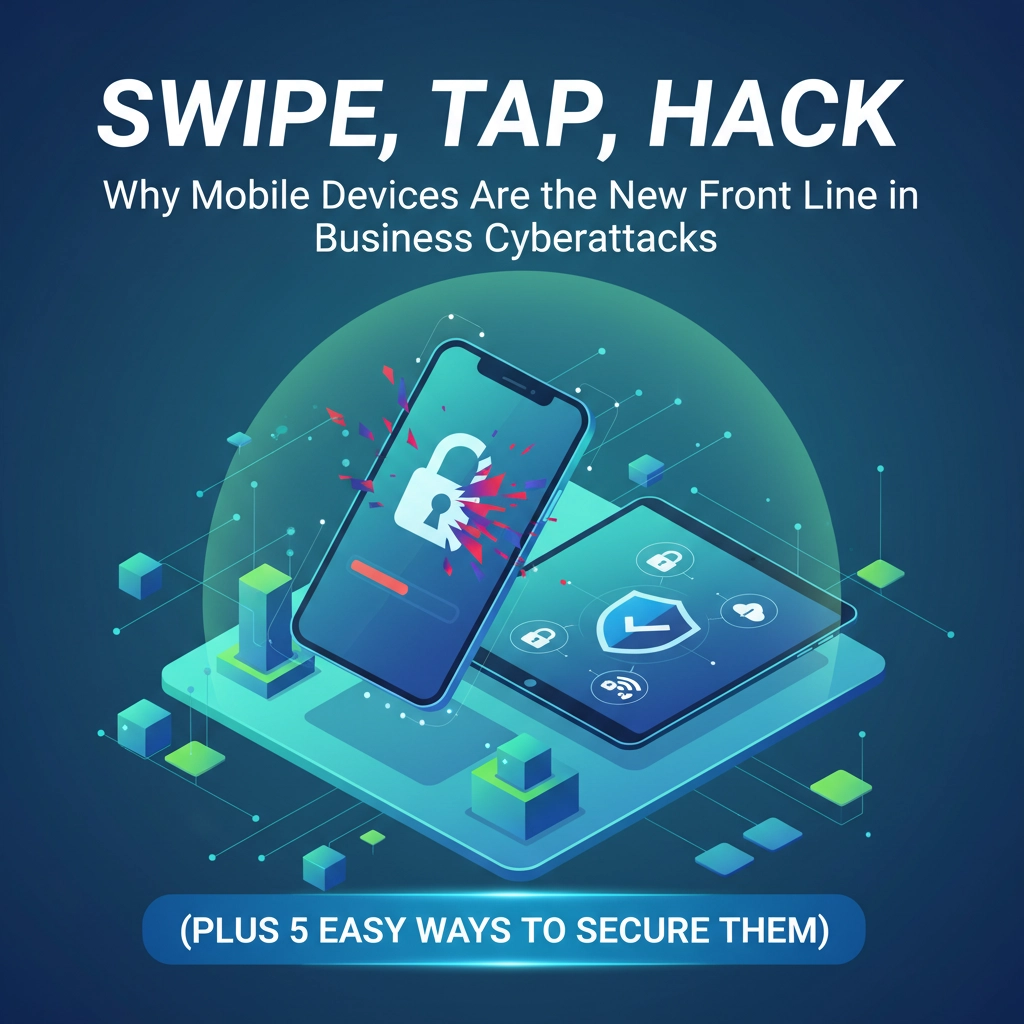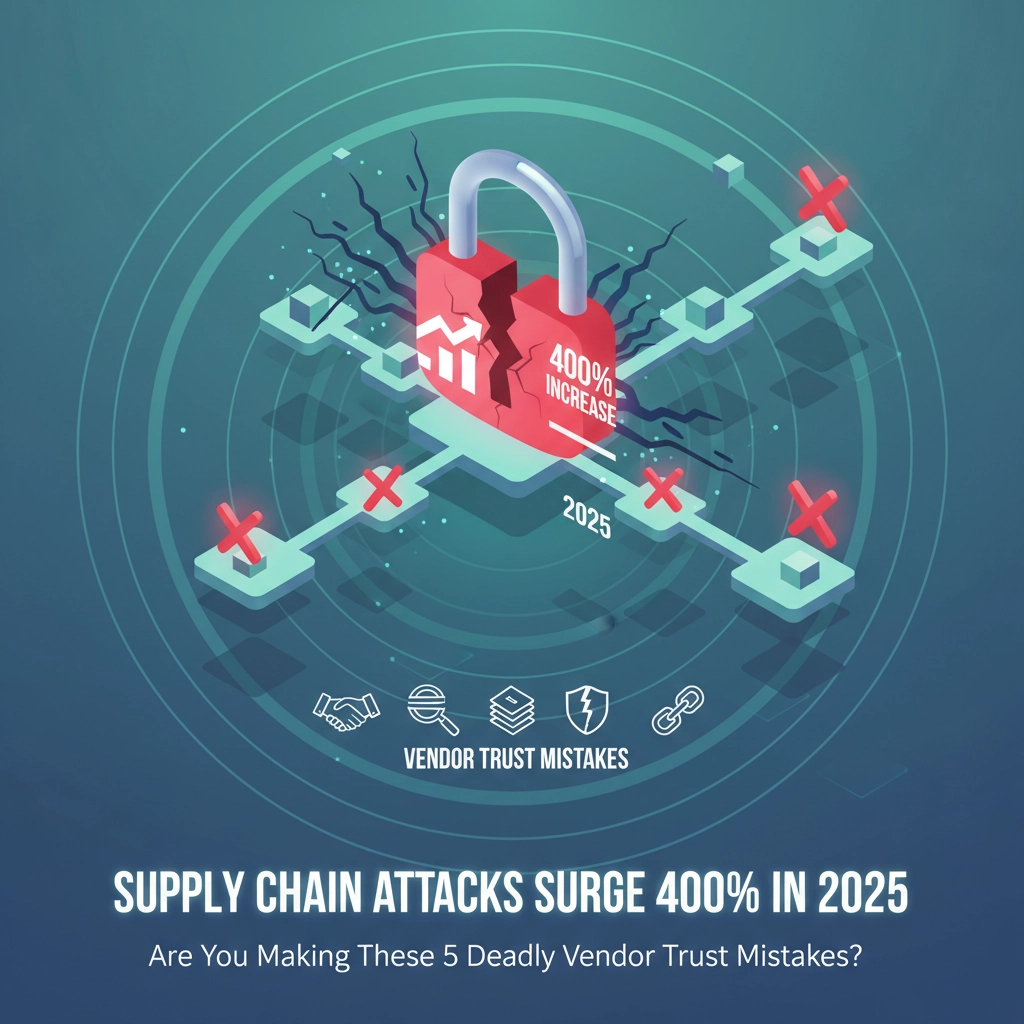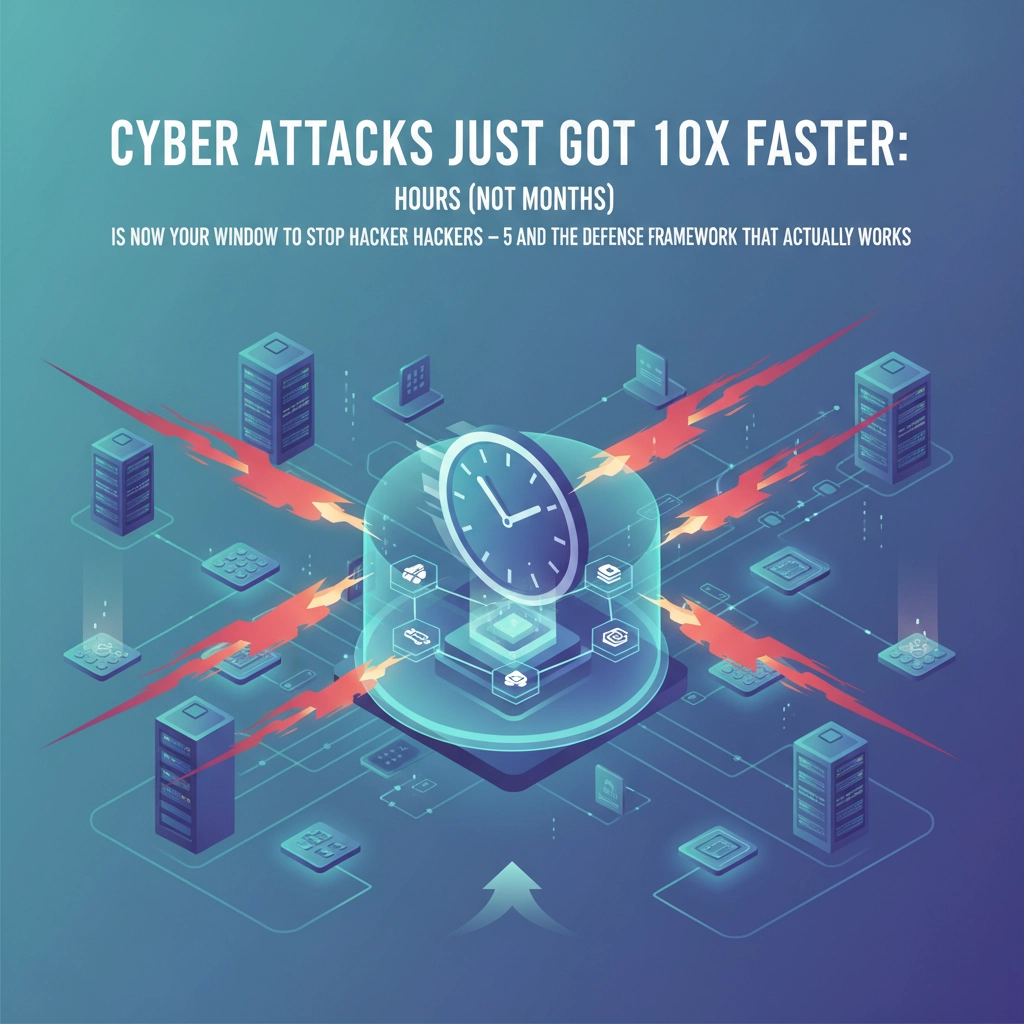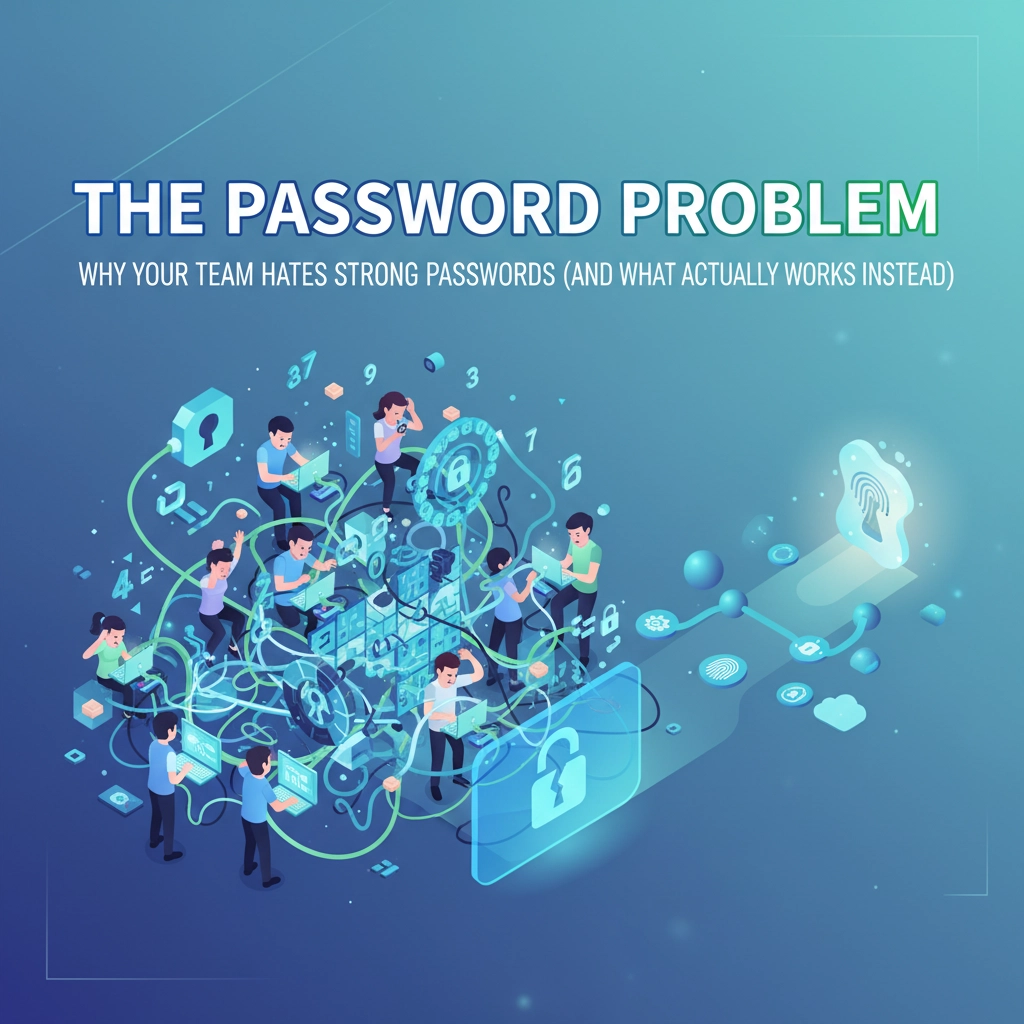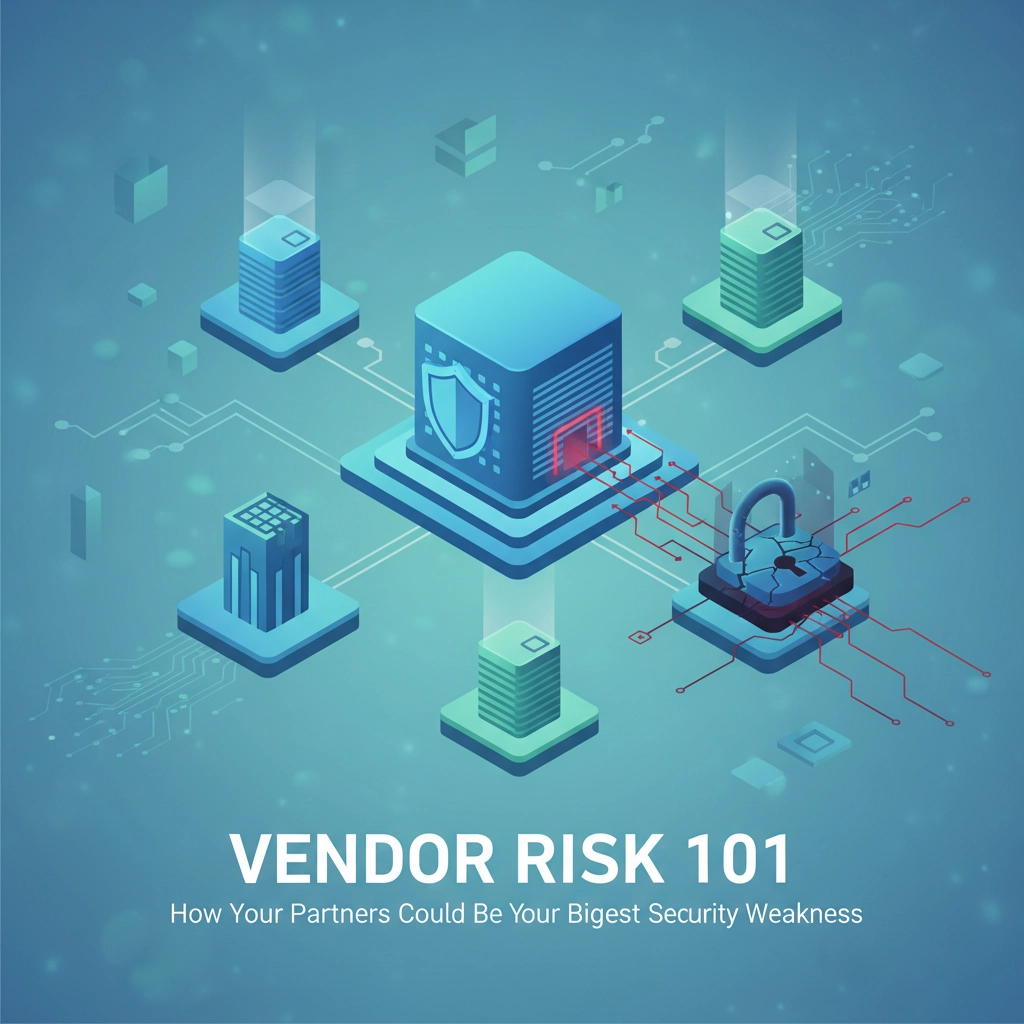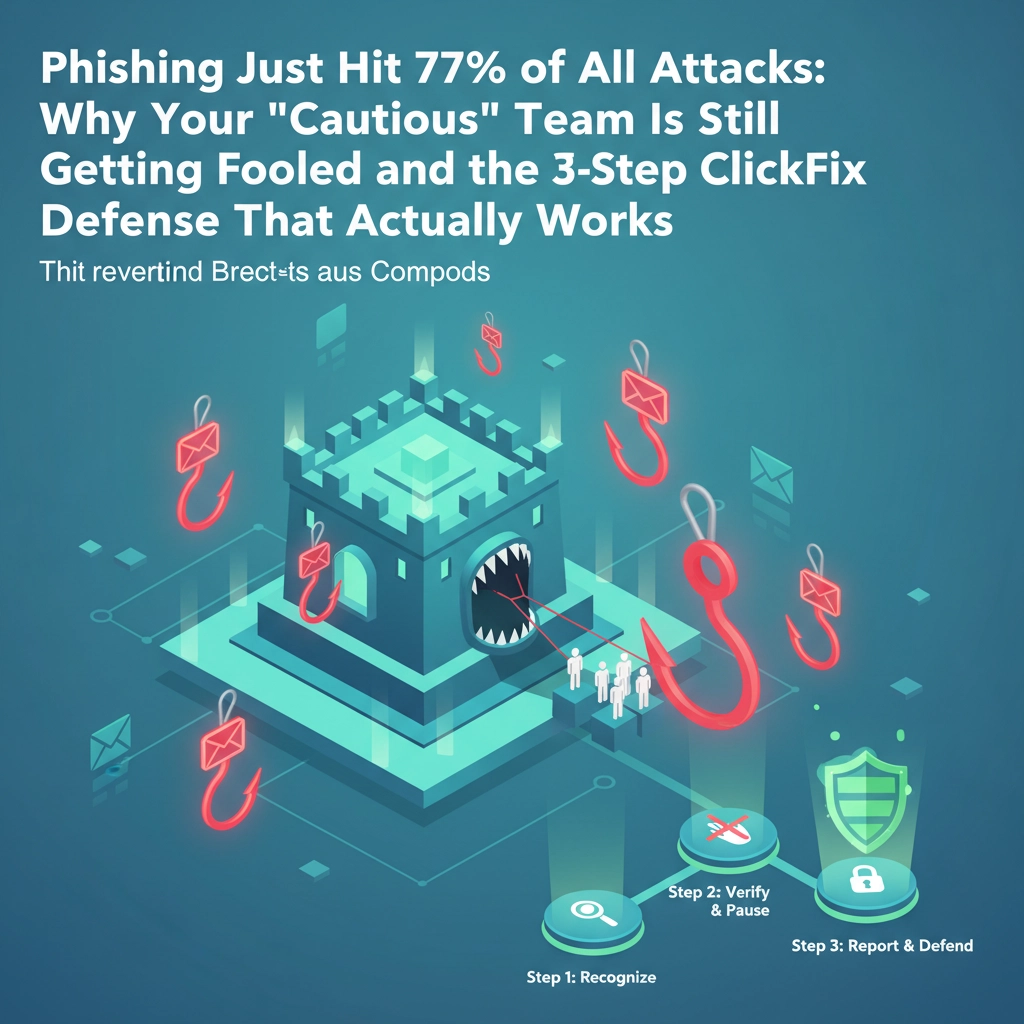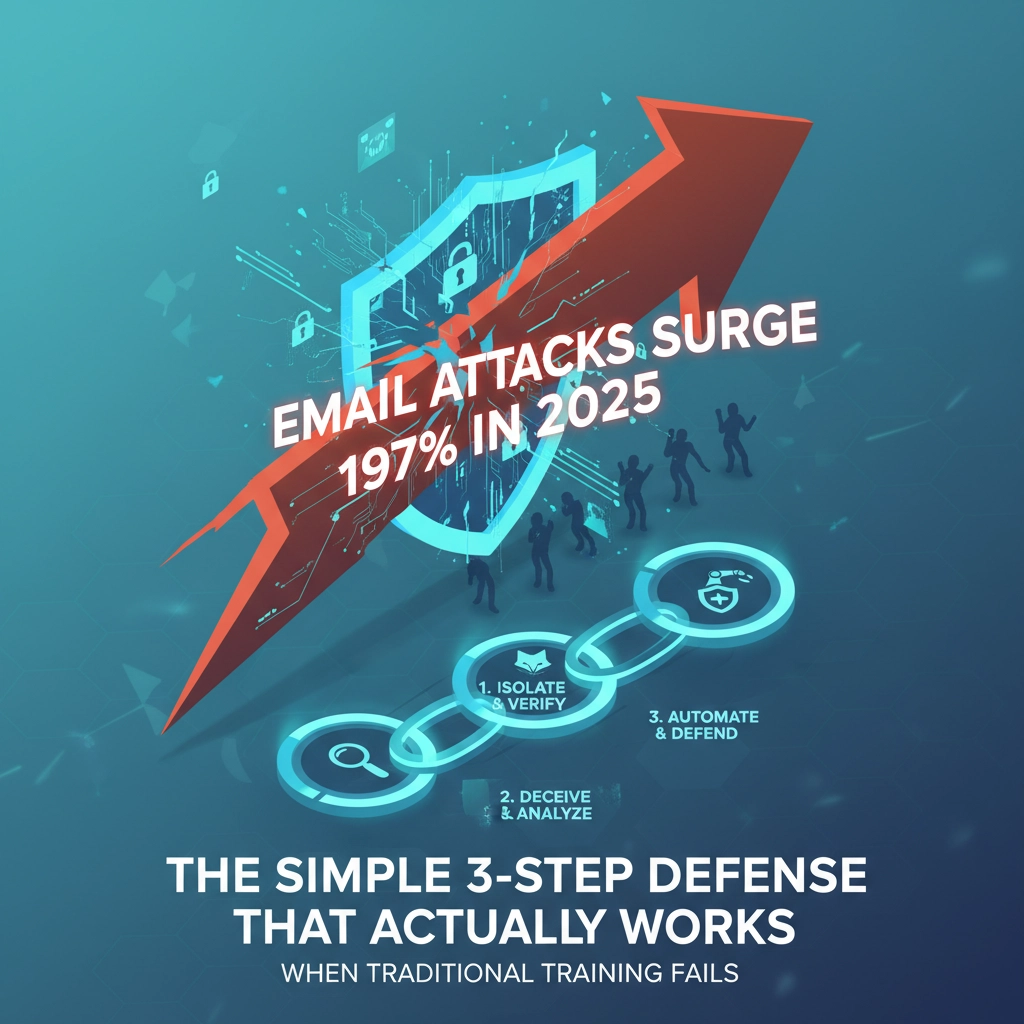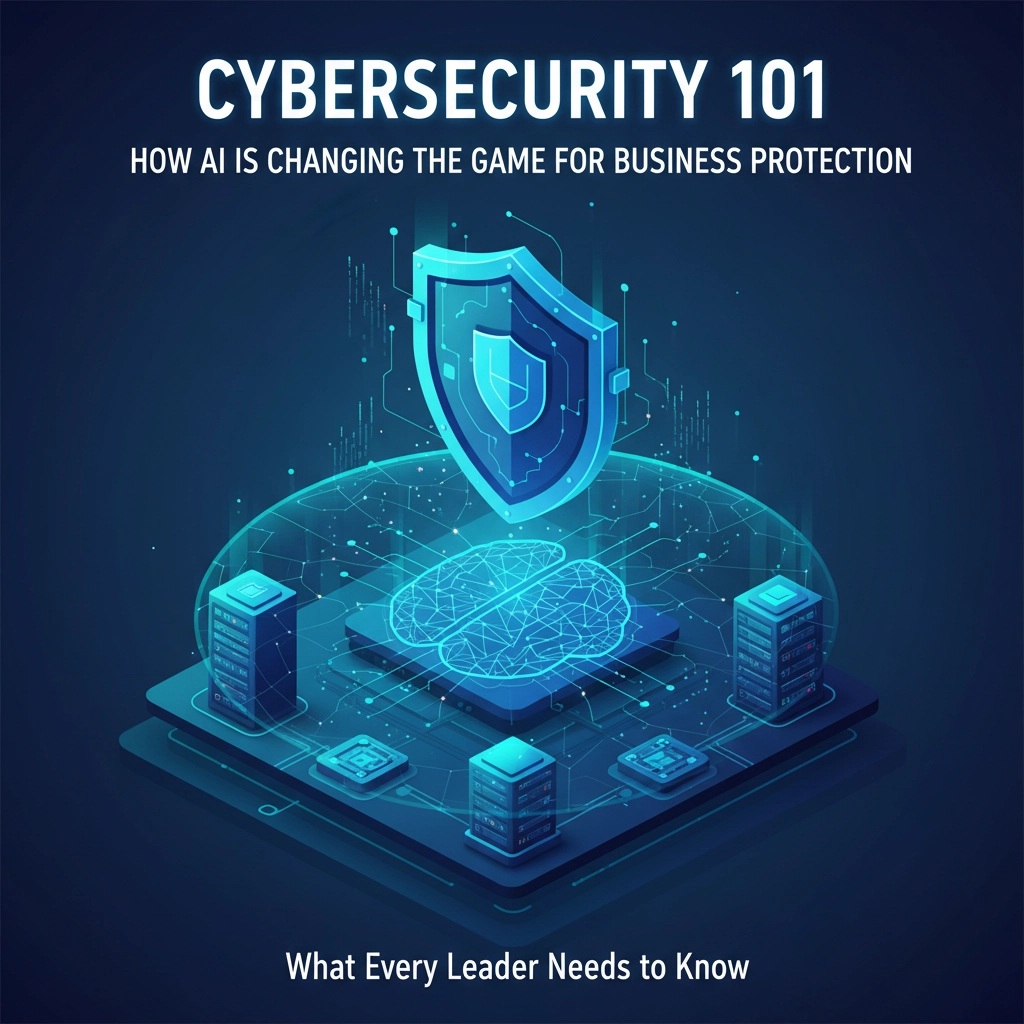Here's a sobering reality check: while you're planning your Black Friday sales strategy, cybercriminals are planning their biggest payday of the year. Black Friday-themed phishing attacks have jumped 692% compared to early November, and retail cyber scams have increased by more than 600%. Christmas-themed attacks? They've leaped 327% during the critical shopping week.
This isn't just noise: it's a coordinated assault on businesses when they're most vulnerable. The numbers don't lie: 45% of holiday shoppers will face some form of attempted cyberattack, and financial fraud during holiday shopping accounts for $8.5 billion annually. For your business, this means the next few weeks could be make-or-break for your cybersecurity.
Why Black Friday Is Hacker Christmas
Think about it from a cybercriminal's perspective. Black Friday and the holiday season create the perfect storm of opportunity:
Everyone's distracted. Your team is juggling increased sales volume, holiday schedules, and end-of-year deadlines. Customers are focused on deals, not security warnings. It's like having a neighborhood watch that's all looking the other way at the same time.
Traffic volume provides cover. With online transactions reaching record levels, malicious activity blends into the chaos. When your servers are processing thousands of legitimate transactions, that one fraudulent purchase doesn't stand out until it's too late.

Staffing is thin. Many businesses operate with reduced IT staff during the holidays due to vacation schedules. Those skeleton crews mean slower response times when every second counts in stopping an attack.
The stakes are higher. Cybercriminals know businesses are processing more transactions and handling more sensitive data during peak shopping periods. A successful attack during Black Friday can net them significantly more than targeting the same business in February.
The result? Over 1.8 million DDoS attacks have been recorded on e-commerce websites, with 70% specifically targeting checkout systems. Ransomware incidents have doubled during high-volume shopping weekends, with average ransom demands exceeding $250,000 per incident.
The Attack Playbook Targeting Your Business
Cybercriminals aren't just throwing random attacks at the wall. They're using sophisticated, seasonal strategies designed specifically to exploit holiday shopping patterns:
Phishing Scams (42% of attacks)
Attackers craft convincing emails impersonating major retailers like Amazon, Walmart, and Target. In the US, phishing attacks mimicking major holiday brands increased by more than 2000% during peak shopping periods. These aren't the obvious "Nigerian prince" emails of the past: they're pixel-perfect recreations of legitimate retailer communications.
DDoS Attacks
These overwhelm your systems with traffic, but here's the kicker: 70% target checkout systems specifically. The goal isn't just to crash your site: it's to disrupt transactions and potentially harvest customer data during the chaos.
Credential Stuffing
This attack method has surged 80% during Cyber Monday, affecting over 40 million accounts globally. Hackers take previously breached username/password combinations and try them across multiple sites, banking on the fact that people reuse passwords.

Fake E-commerce Sites
These have increased by 38% during the holiday season. Cybercriminals create convincing replica sites of popular retailers, complete with Black Friday deals that are too good to be true. When customers enter their payment information, attackers capture everything.
Card-Not-Present Fraud
This accounts for over 75% of online fraud cases during the holidays. Since customers can't physically present their cards for online purchases, it's easier for criminals to use stolen card information.
For small businesses, the statistics are particularly alarming: 56% of small and medium-sized businesses report an attack during Black Friday sales, and 72% of businesses globally admit they're underprepared to handle the cyber threat surge.
Your 5-Step Holiday Security Defense Plan
The good news? You don't need a massive IT department to protect your business. Here's your actionable checklist that you can implement starting today:
1. Update Everything (Seriously, Everything)
This isn't just about your computers. Update your point-of-sale systems, e-commerce platforms, mobile apps, security software, and any IoT devices in your business. Cybercriminals actively scan for known vulnerabilities, especially during high-traffic periods when they have more cover.
Set aside time this week to run updates on all systems. If you're using WordPress or other content management systems, make sure plugins are current. Your website security could be compromised through a single outdated plugin.
2. Deploy Mobile Security Across All Devices
With a 50% increase in attacks on mobile shopping apps in 2023, mobile security isn't optional anymore. This includes:
- Installing reputable security apps on all employee mobile devices
- Ensuring your business mobile apps are downloaded from official app stores
- Training staff to verify app authenticity before downloading
- Implementing mobile device management (MDM) for business devices
3. Train Your Team on Seasonal Social Engineering

Regular cybersecurity training is good, but seasonal training is critical. Your employees need to recognize:
- Black Friday and holiday-themed phishing emails
- Fake shipping notifications and delivery alerts
- Social media scams promoting too-good-to-be-true deals
- Phone calls claiming to be from payment processors or banks
Schedule a 15-minute team meeting this week specifically focused on holiday cyber threats. Make it real by showing examples of actual scam emails that are circulating right now.
4. Monitor Your Network Like a Hawk
During the holiday rush, you need enhanced monitoring of:
- Unusual login attempts or access patterns
- Abnormal network traffic volumes or destinations
- Failed authentication attempts (potential credential stuffing)
- Suspicious outbound data transfers
- Checkout system performance and error rates
If you don't have 24/7 monitoring capabilities, consider partnering with a managed IT provider who can watch your systems while you focus on sales. The right IT partner can be crucial during high-risk periods.
5. Test Your Incident Response Plan (Before You Need It)
You need to know exactly what to do if an attack happens. Your plan should include:
- Who to contact first (internal team and external experts)
- How to isolate affected systems
- Communication protocols for customers and stakeholders
- Data recovery procedures
- Legal and regulatory notification requirements
Run through a tabletop exercise with your team. "It's 2 PM on Black Friday, and customers are calling saying they can't complete purchases. What do you do first?" Having these conversations now could save your business later.
Beyond the Basics: Extra Protection Layers
Consider implementing these additional safeguards if your budget allows:
- Multi-factor authentication on all critical business accounts
- Enhanced backup frequency during the holiday season
- Additional fraud monitoring for payment processing
- Temporary increases in cybersecurity insurance coverage

Remember, man-in-the-middle attacks on public Wi-Fi networks were linked to over 18% of financial breaches during Cyber Monday. If your employees or customers use public Wi-Fi for business purposes, VPN usage becomes critical.
The Time to Act Is Now
Here's the reality: cybercriminals are already preparing for their holiday campaigns. Every day you delay implementing these protections is another day you're vulnerable to increasingly sophisticated attacks.
The financial impact extends beyond immediate losses. The average cost of a data breach for small businesses is $2.98 million, and many businesses don't survive a major cyber incident. With $10 billion in global financial losses predicted from cyberattacks during Black Friday and Cyber Monday in 2024, the question isn't whether attacks will happen: it's whether your business will be ready.
Start with the five-step checklist today. Update your systems, secure your mobile devices, train your team, enhance your monitoring, and test your response plan. These aren't just IT tasks: they're business survival strategies.
Your Black Friday sales success depends on customer trust, and nothing destroys trust faster than a data breach during the holiday shopping season. Take action now, before the rush begins, and turn your cybersecurity preparation into a competitive advantage.
Need help implementing these security measures before Black Friday hits? Contact B&R Computers for a rapid security assessment and implementation plan designed specifically for the holiday shopping surge. Don't let cybercriminals turn your biggest sales season into your biggest security nightmare.





